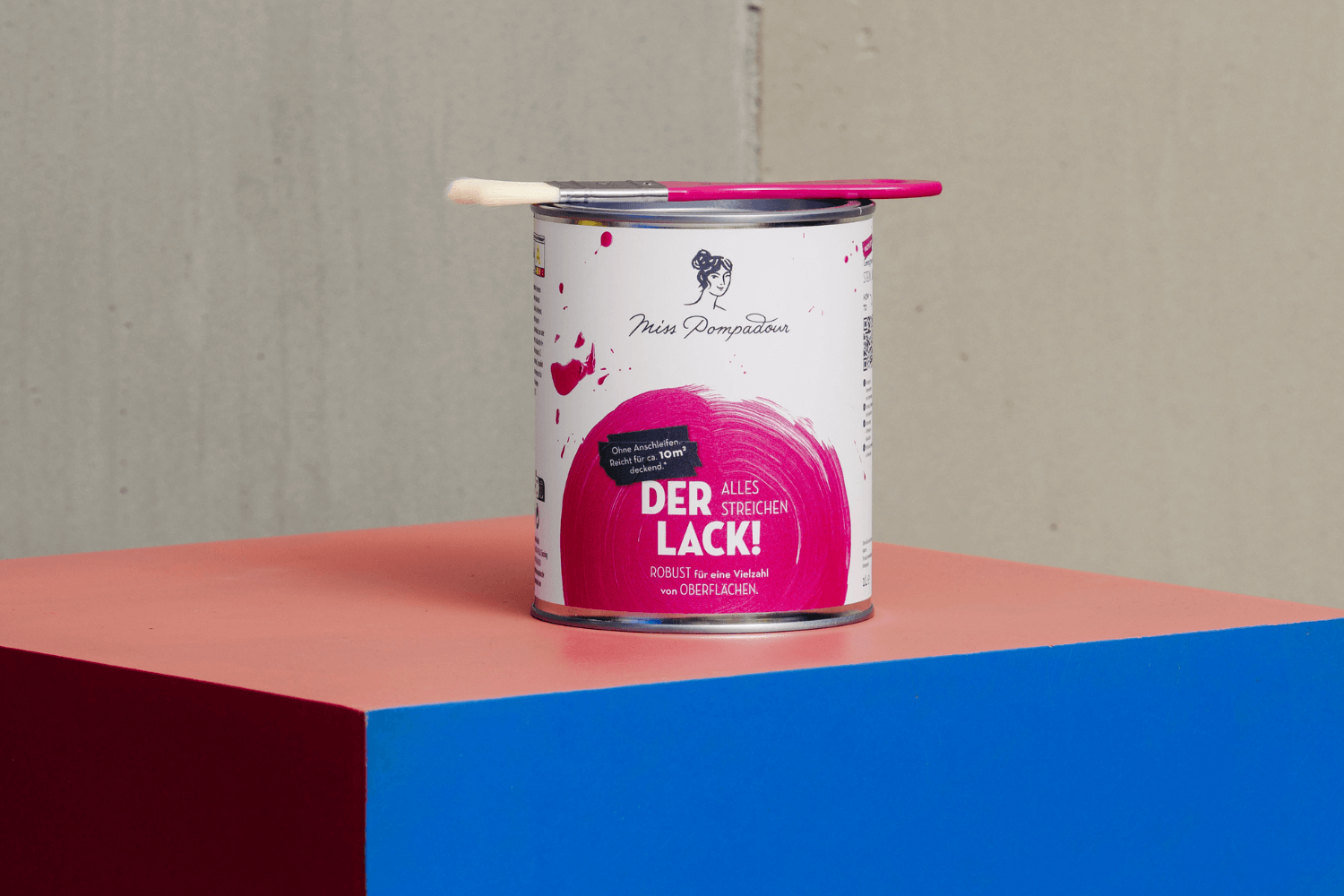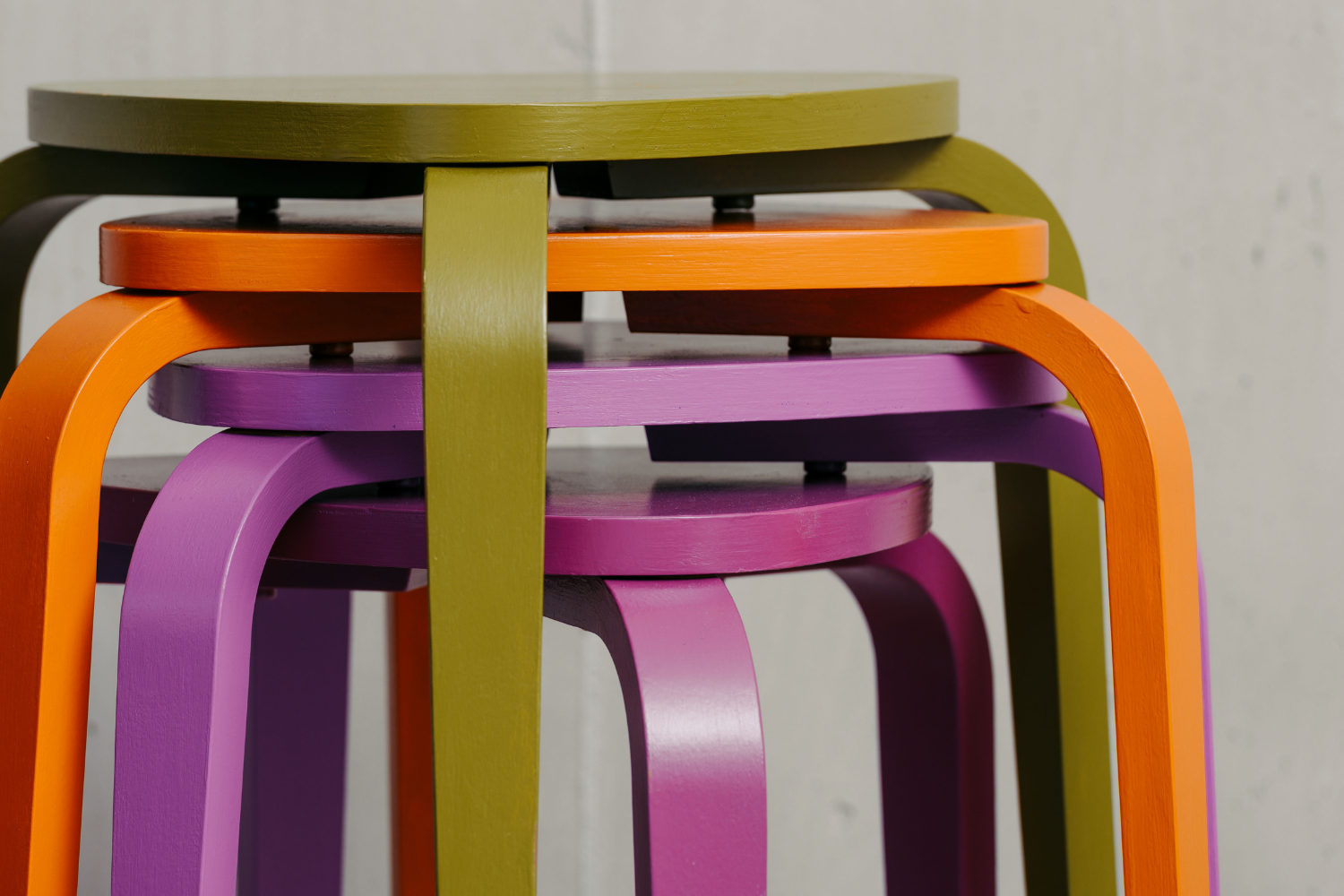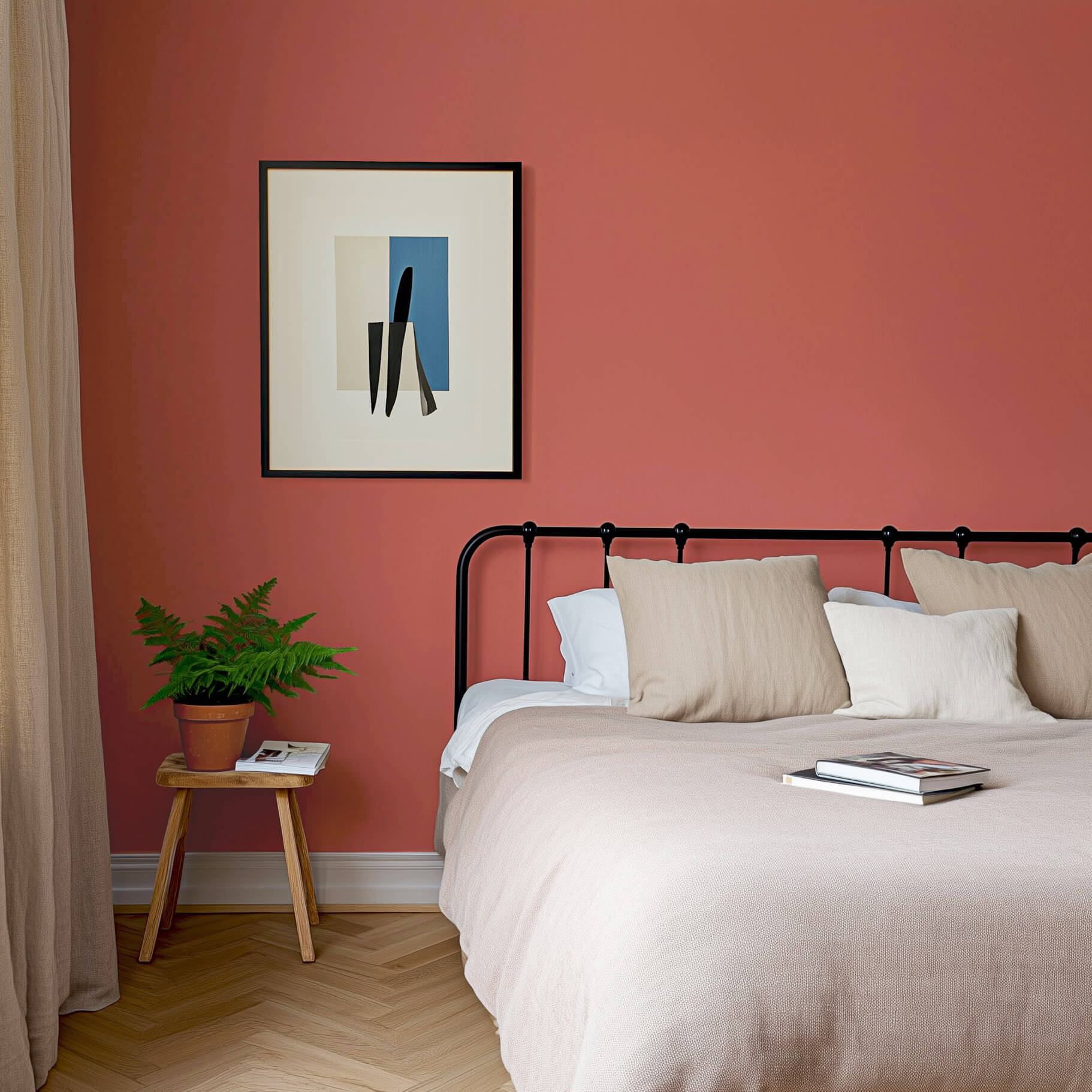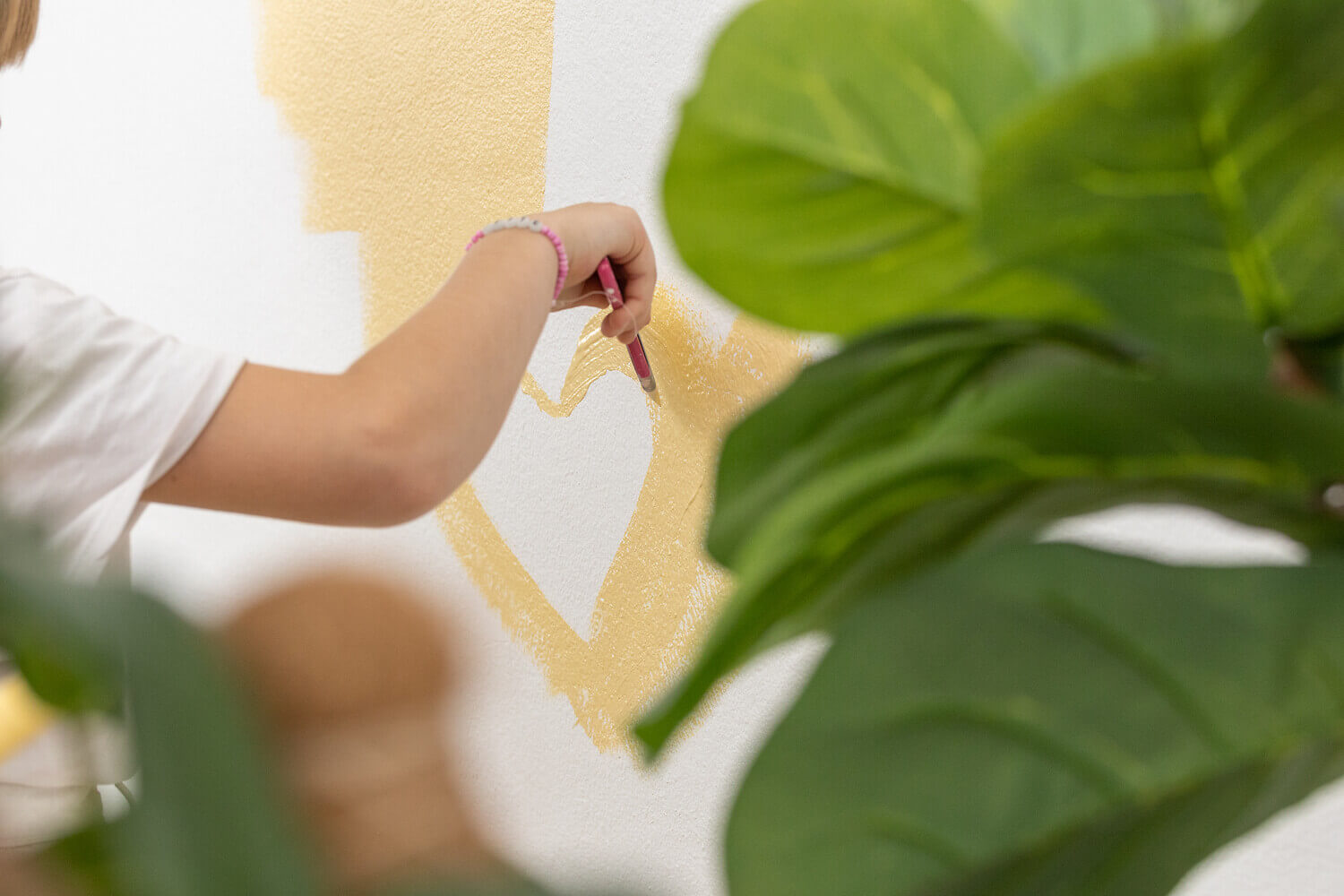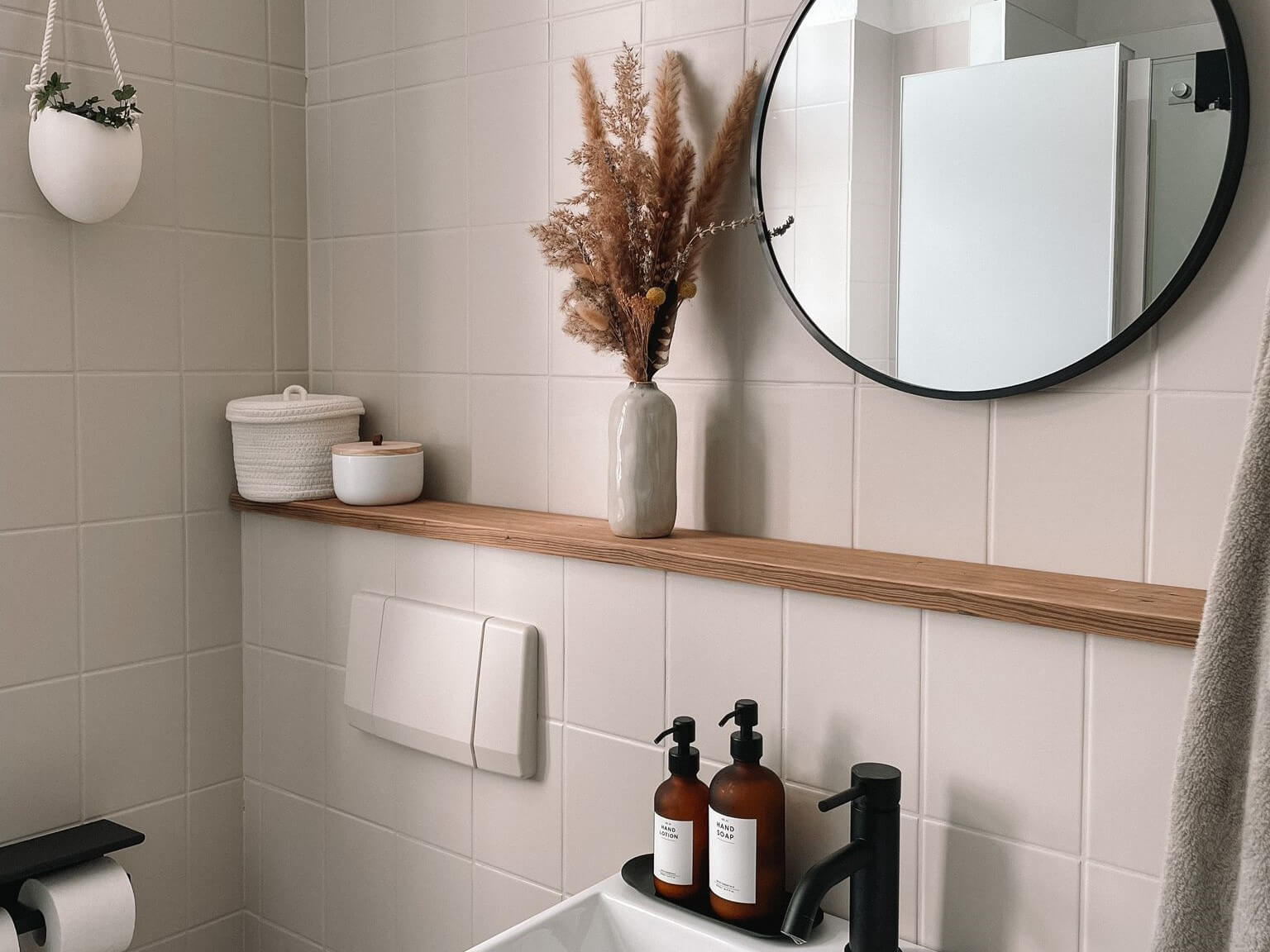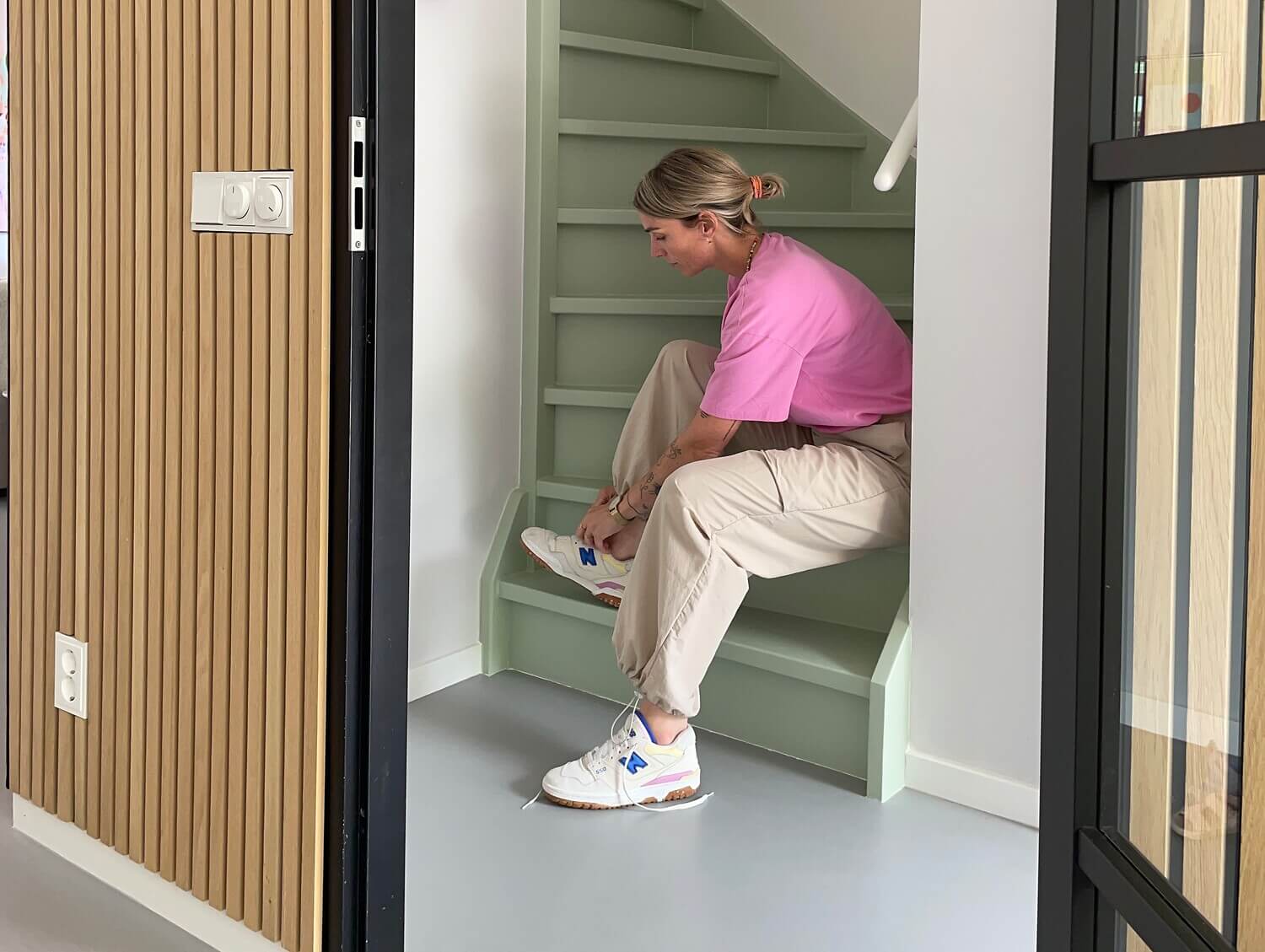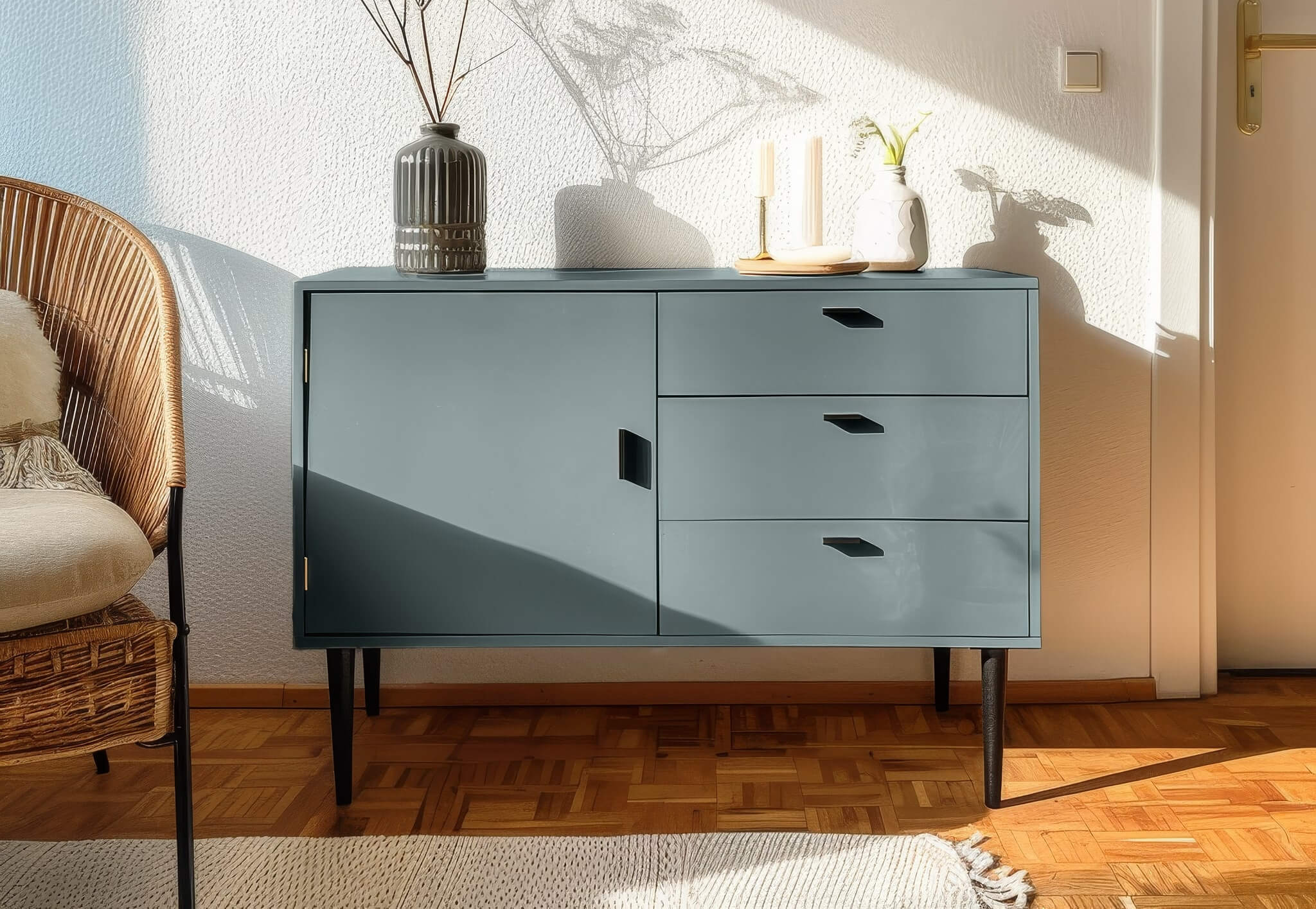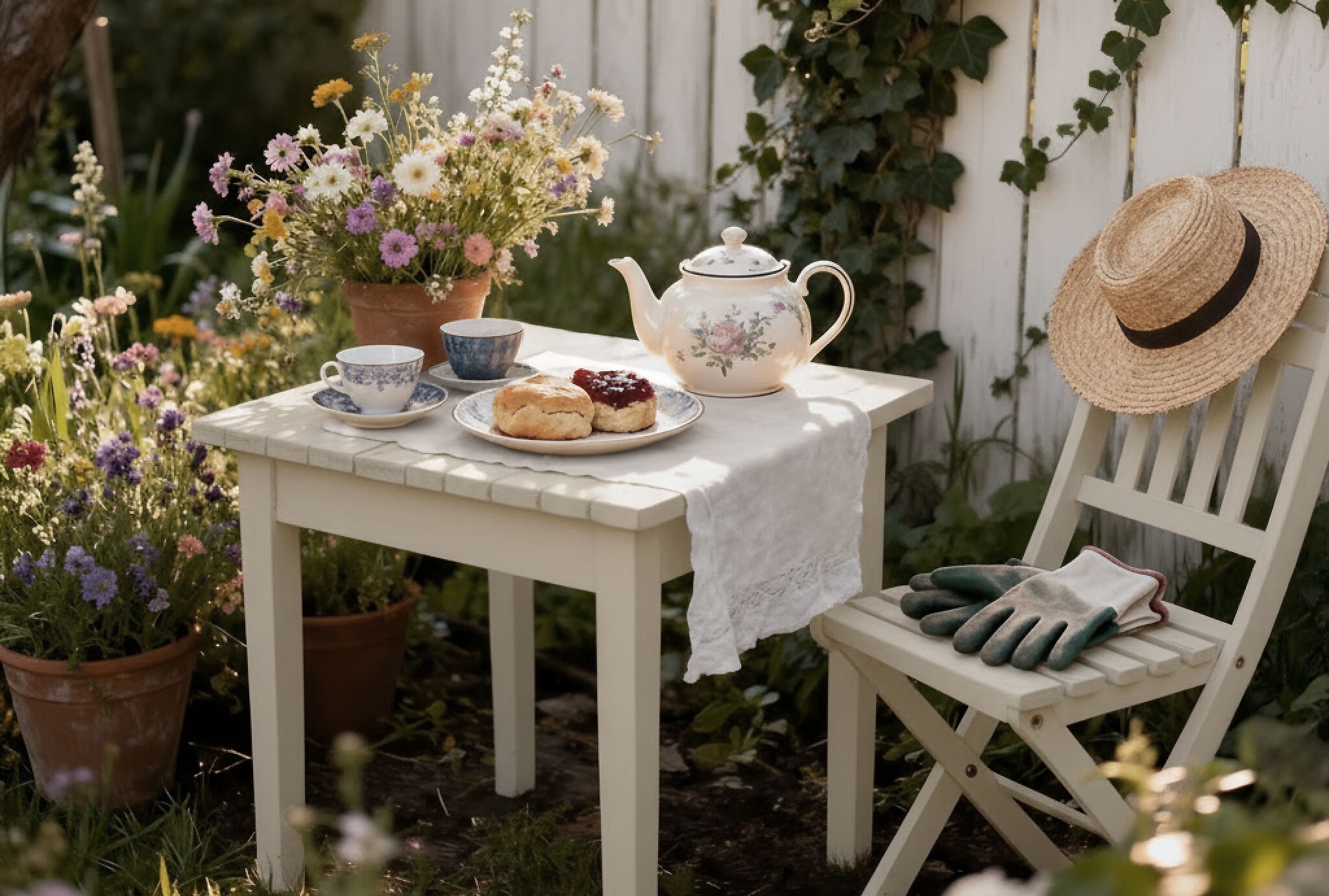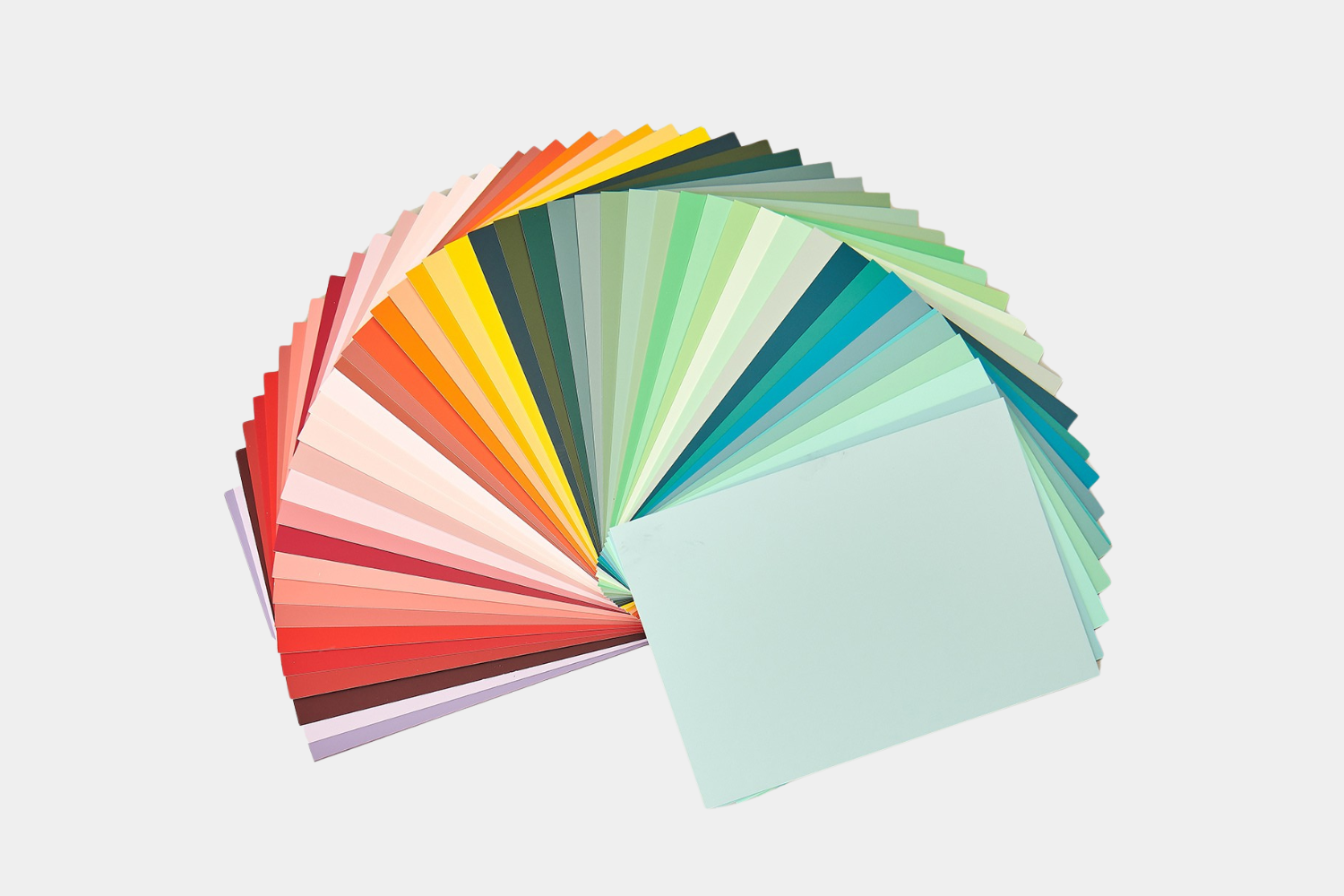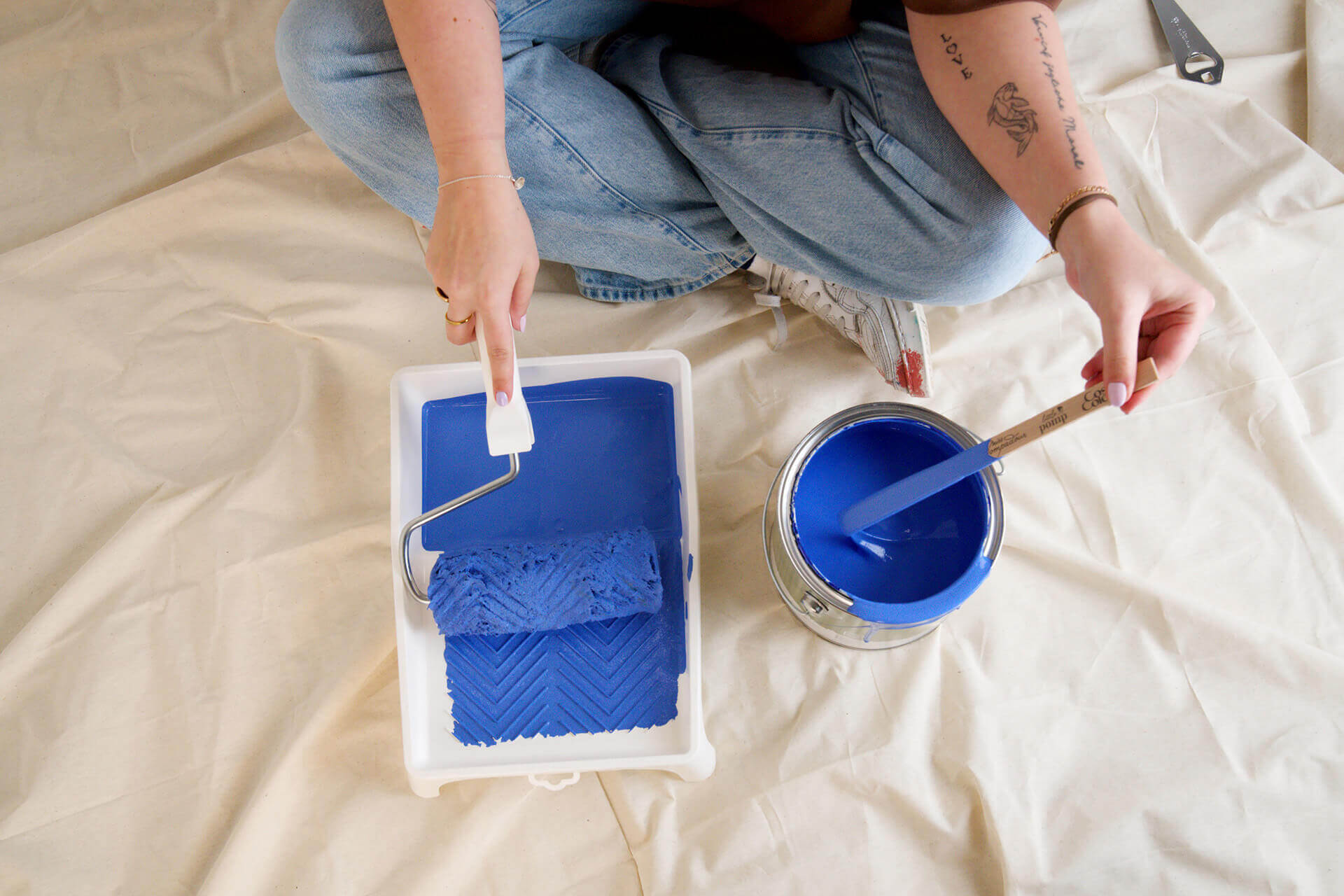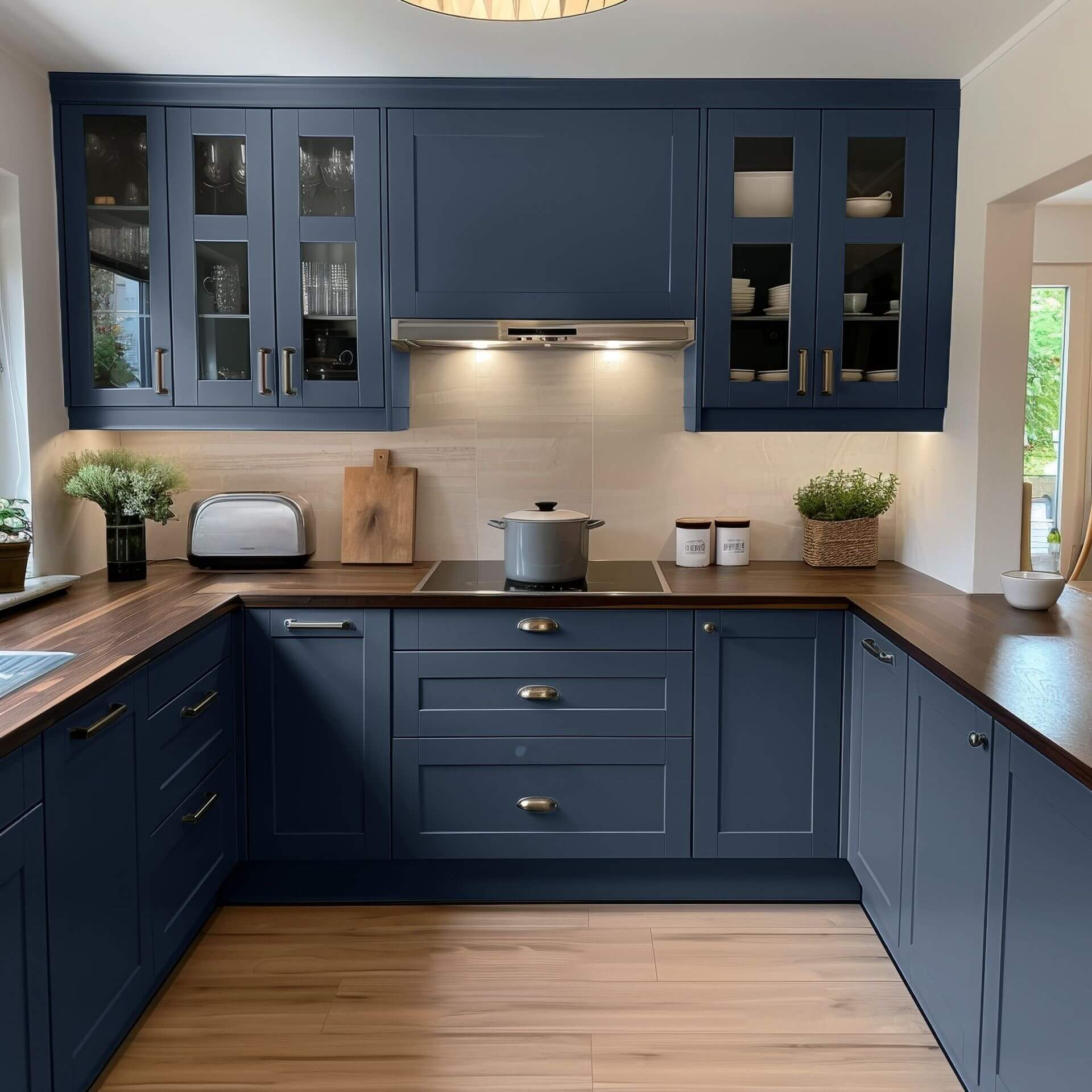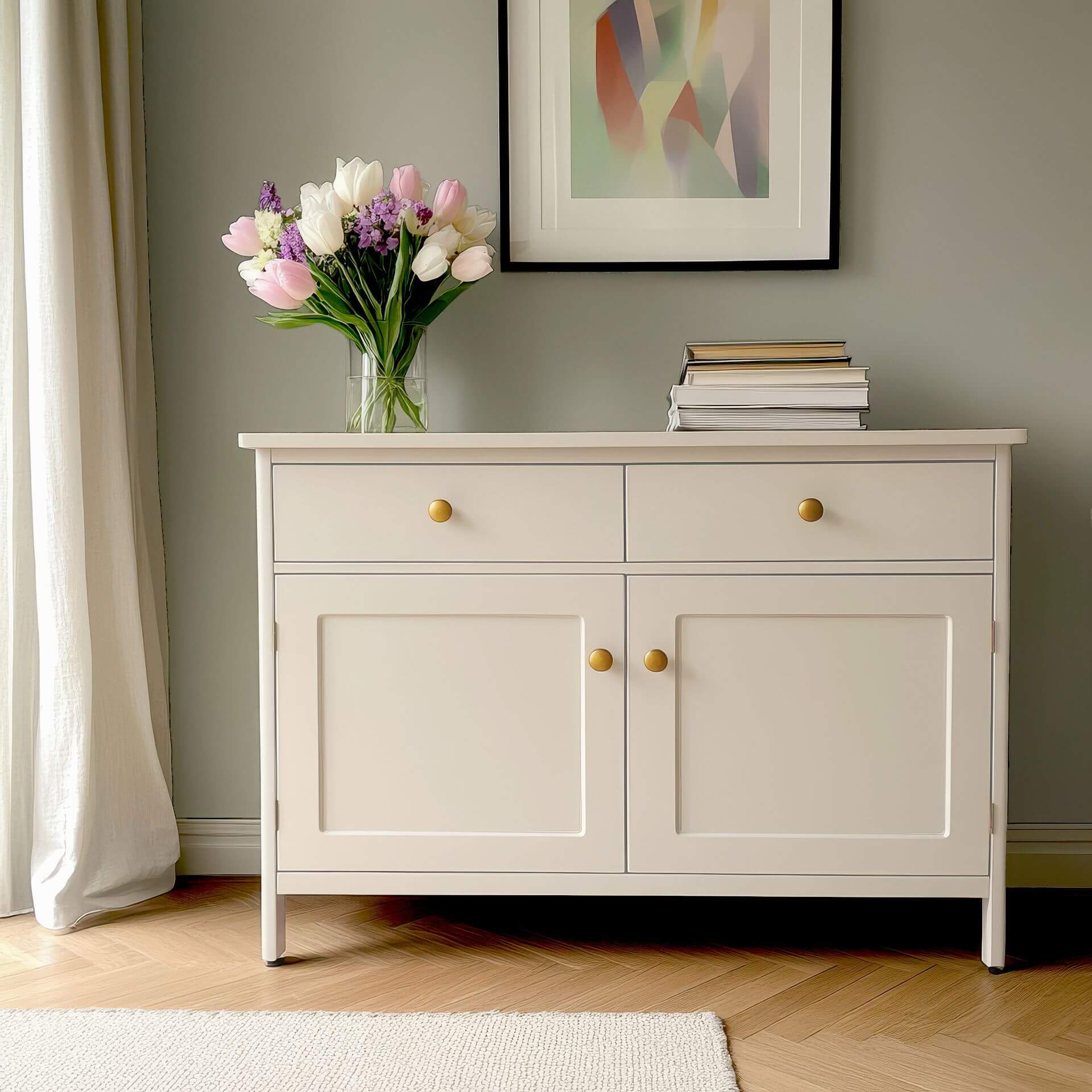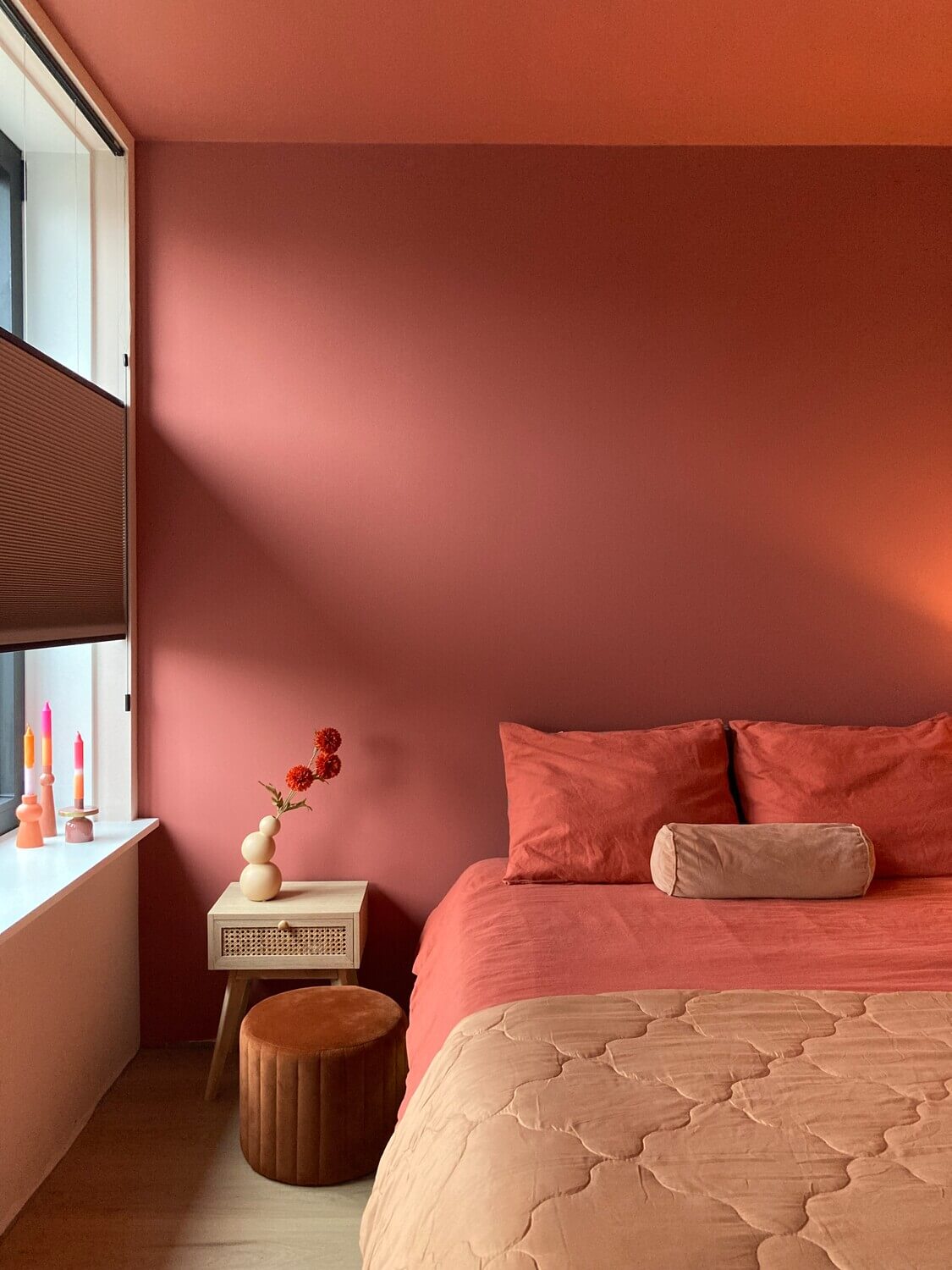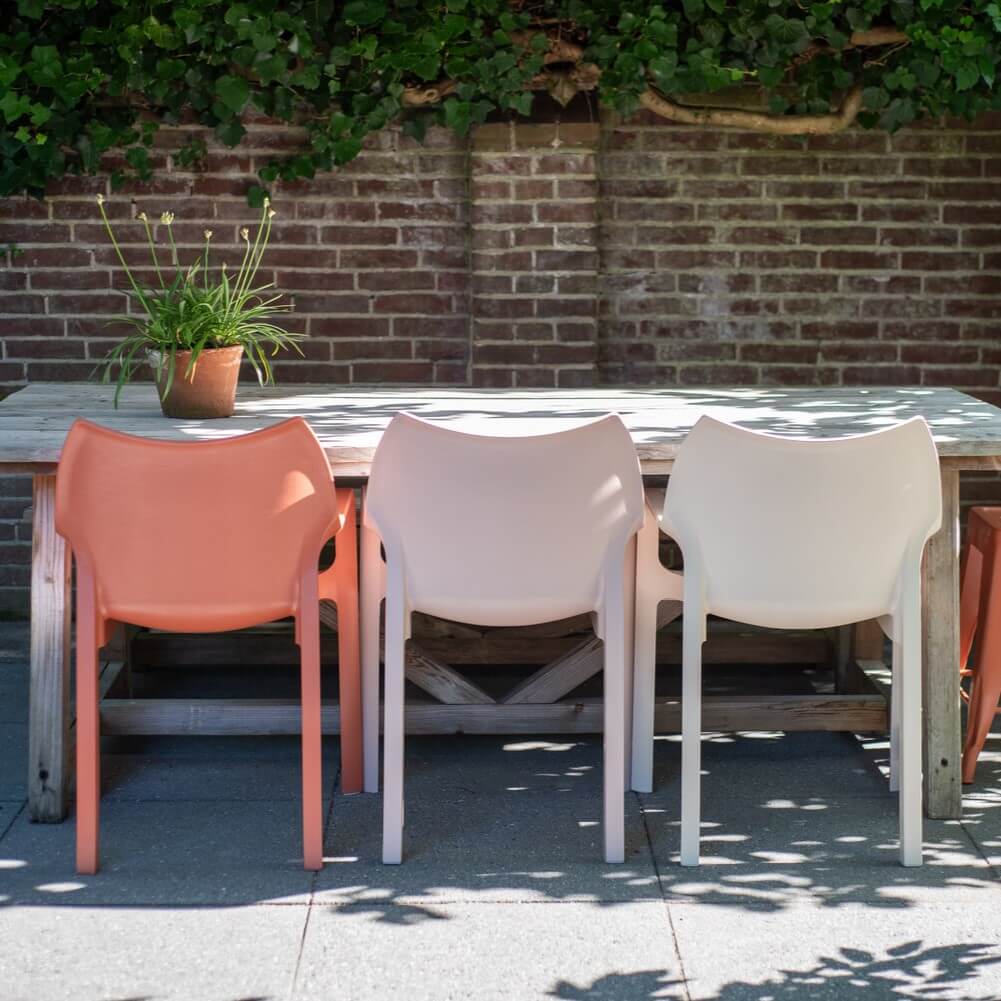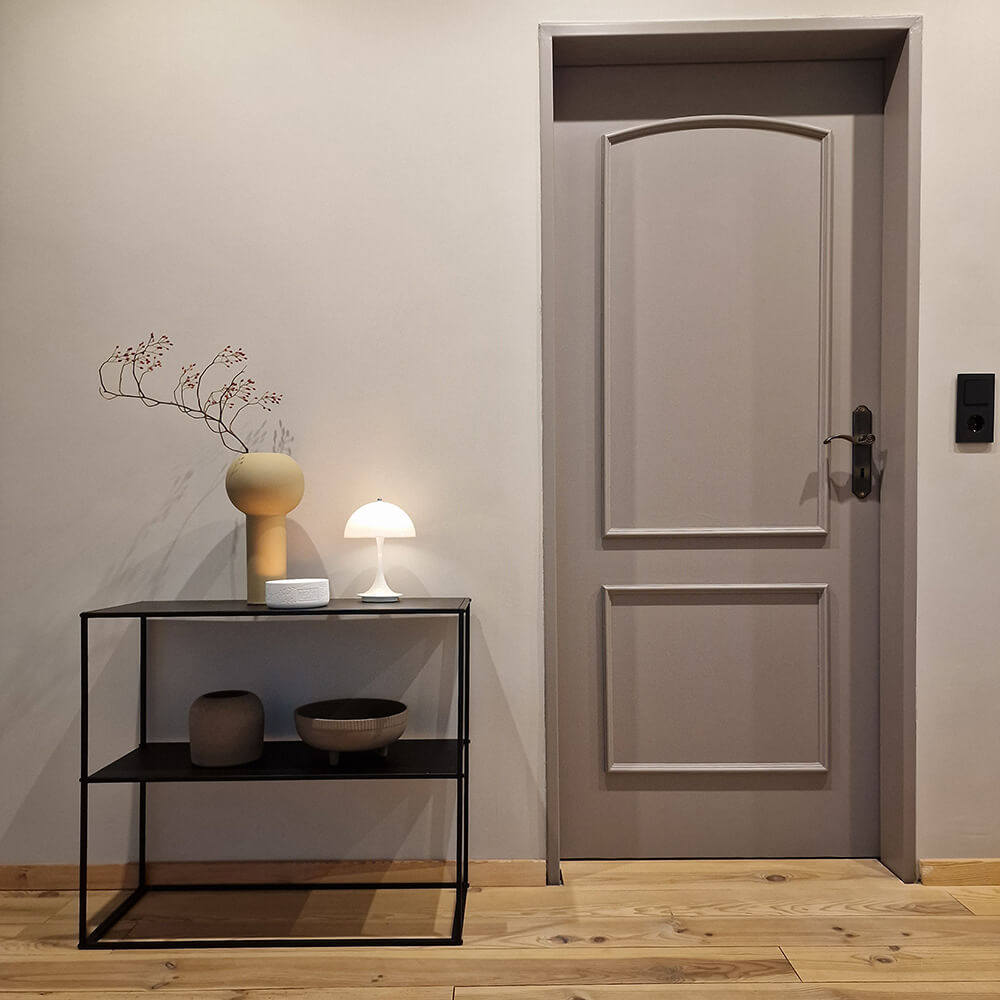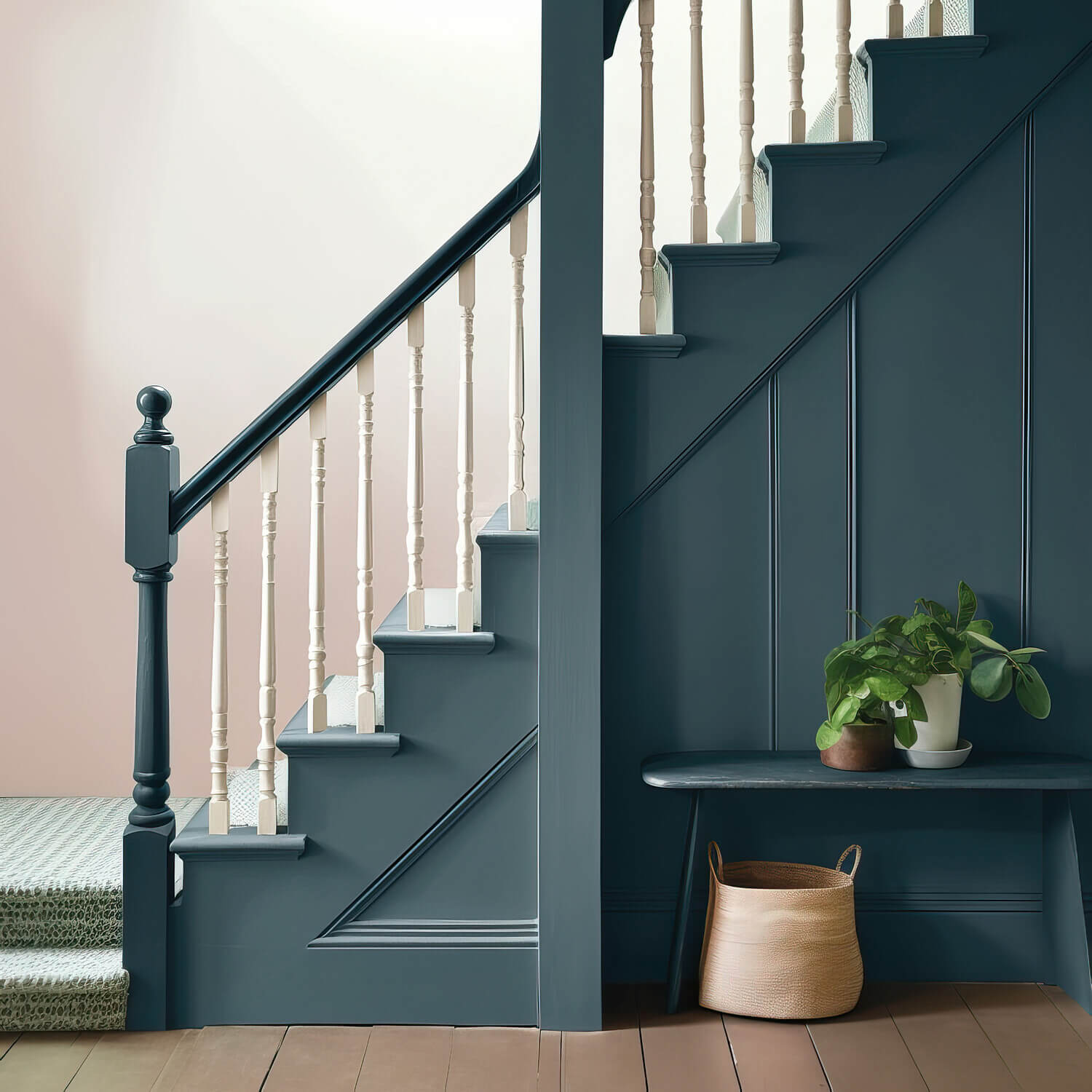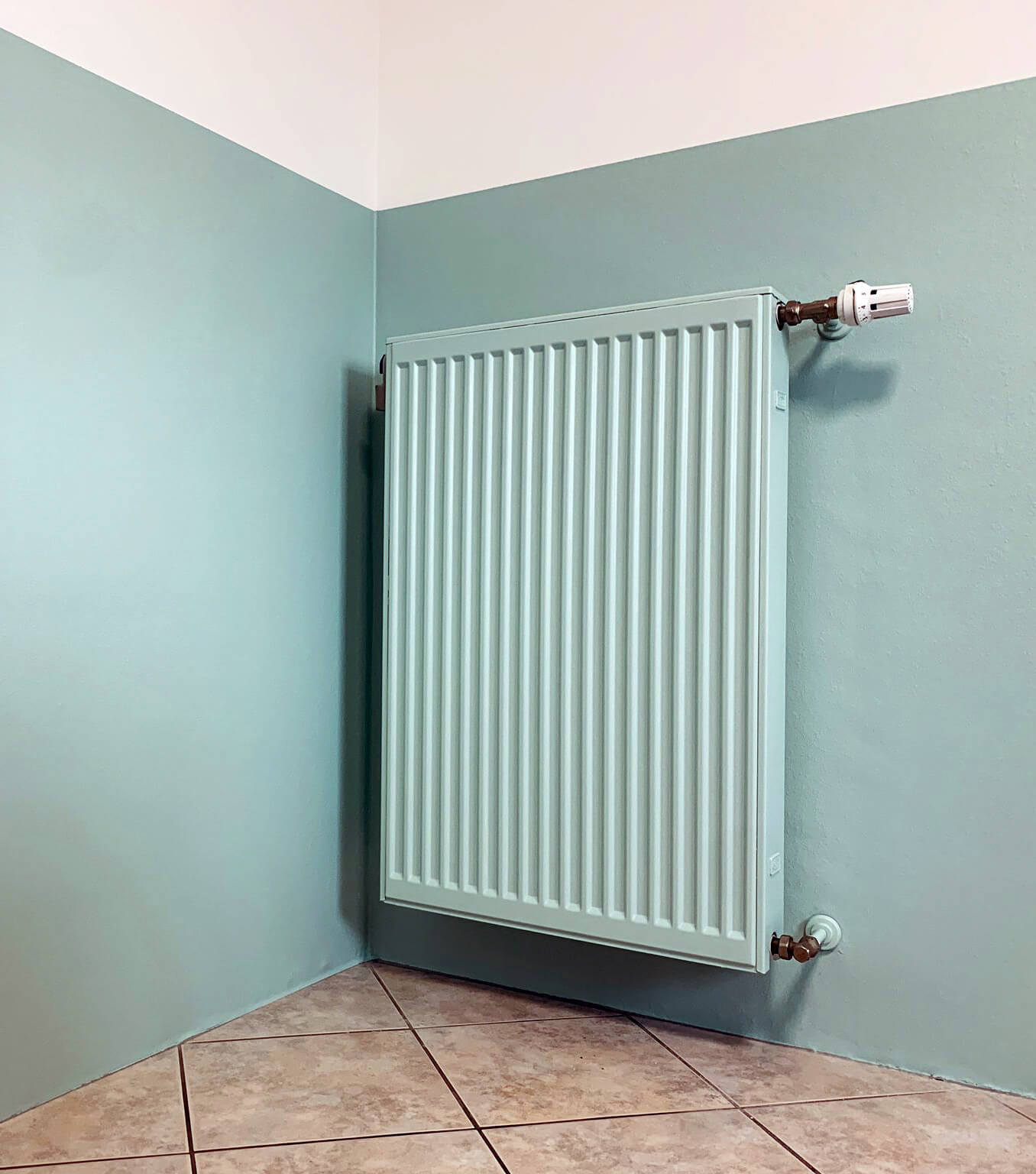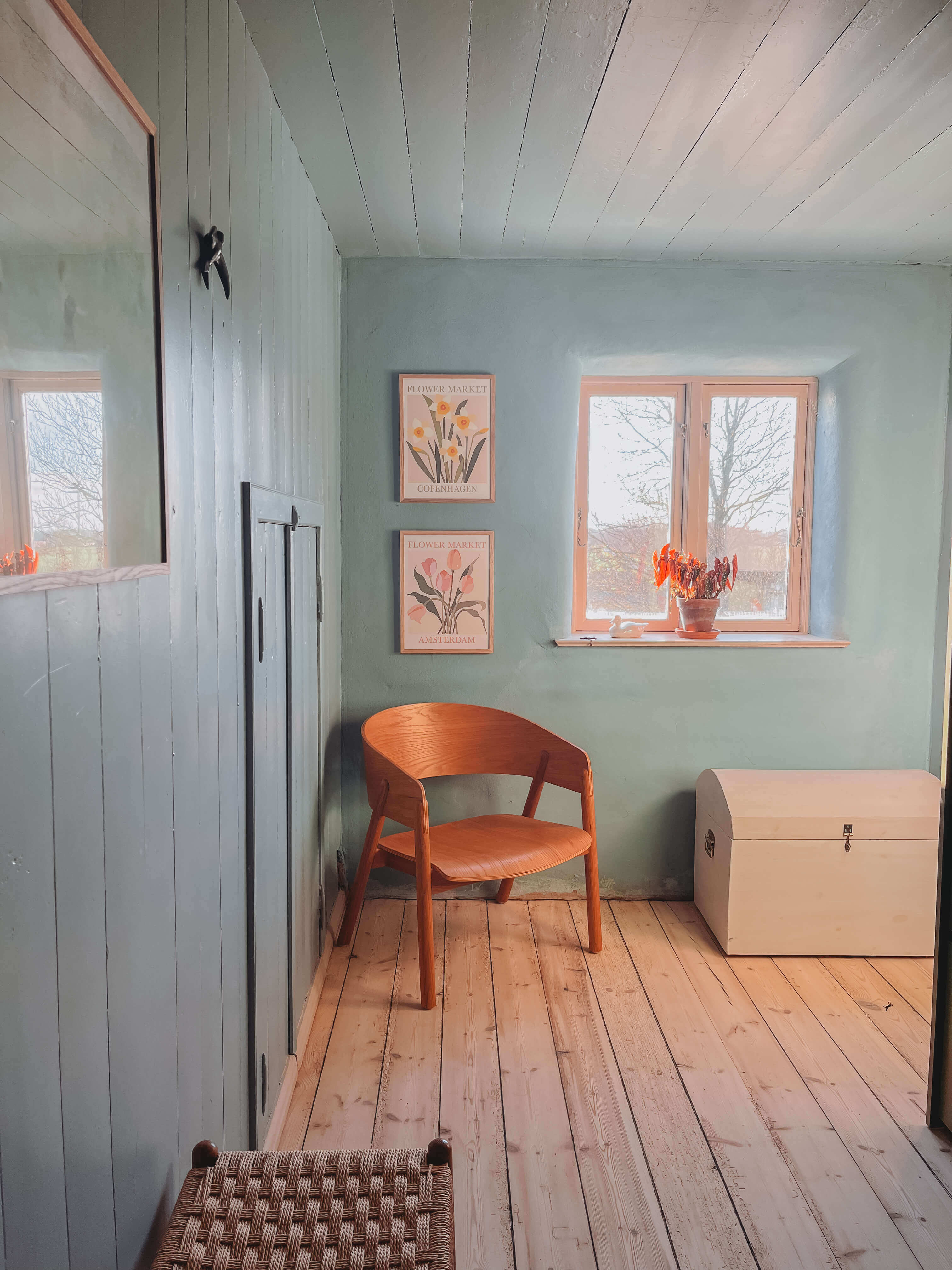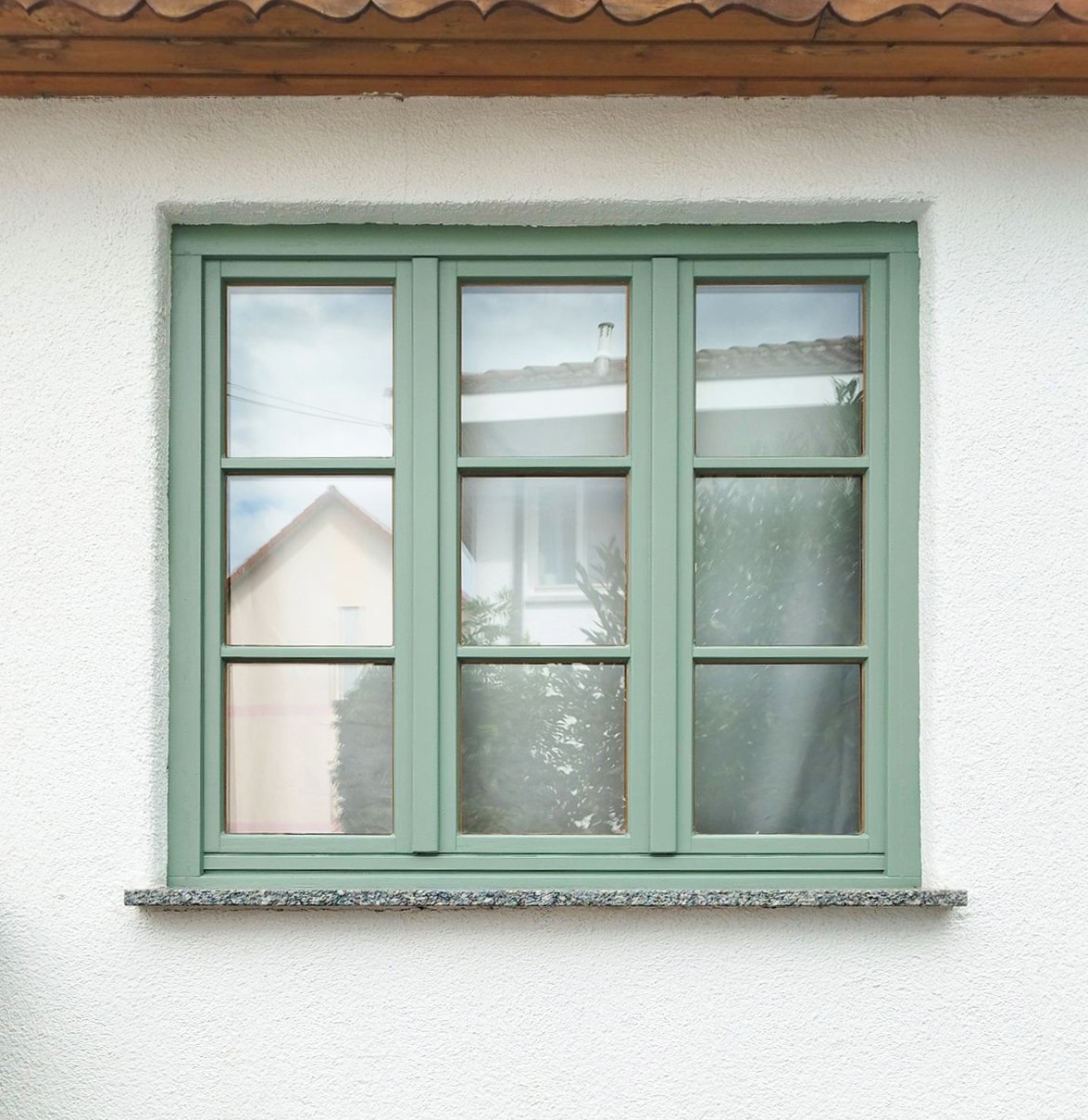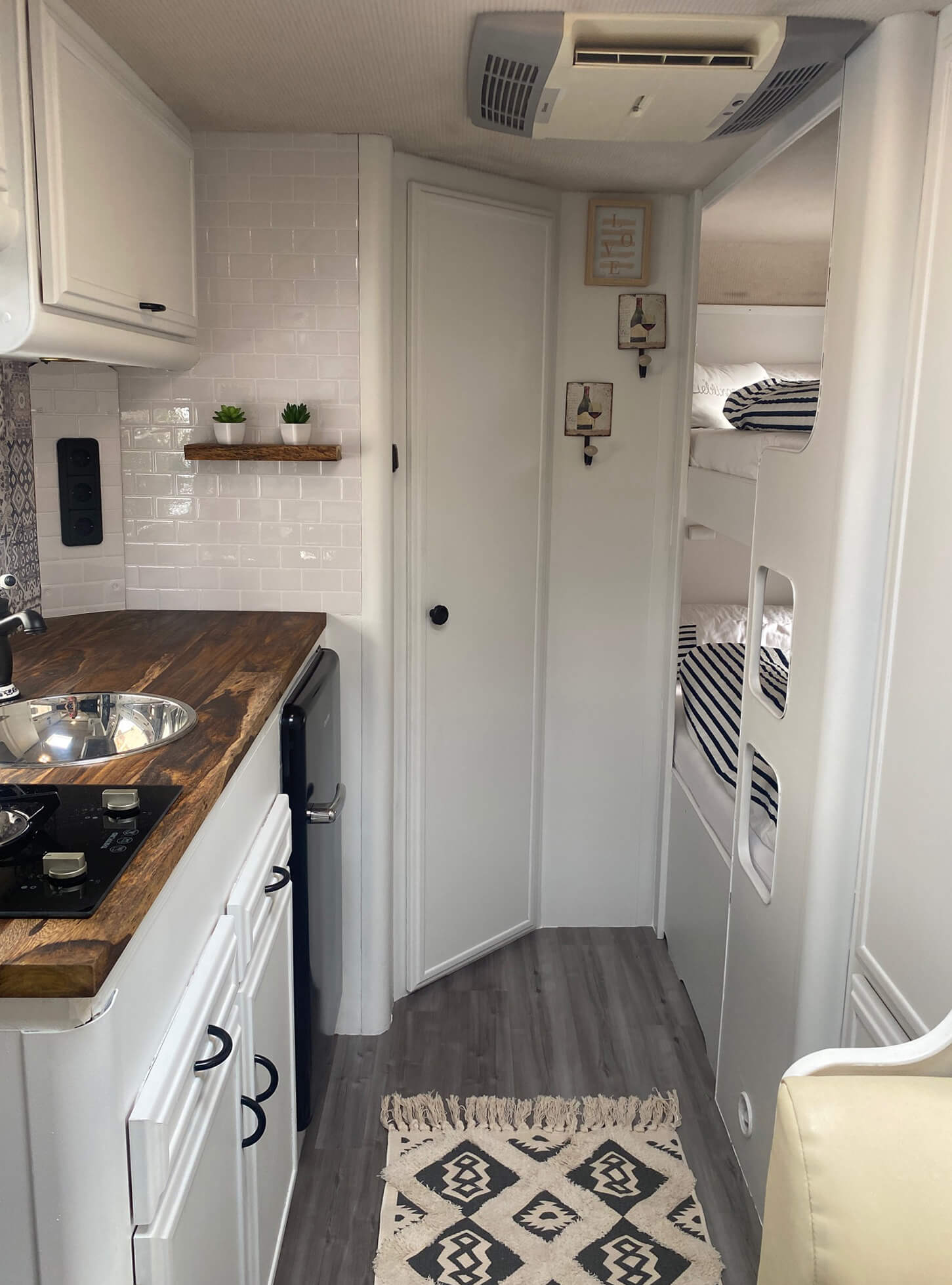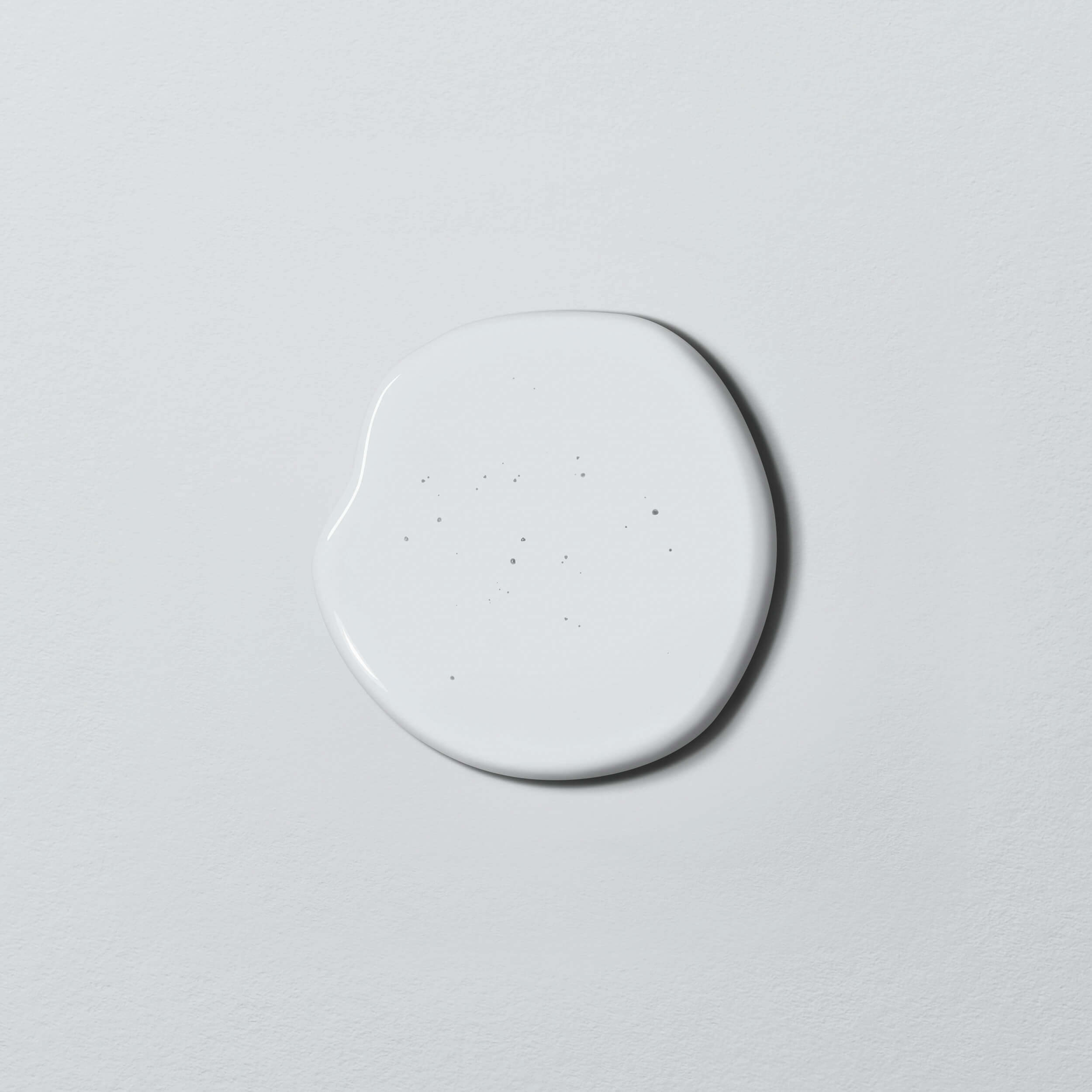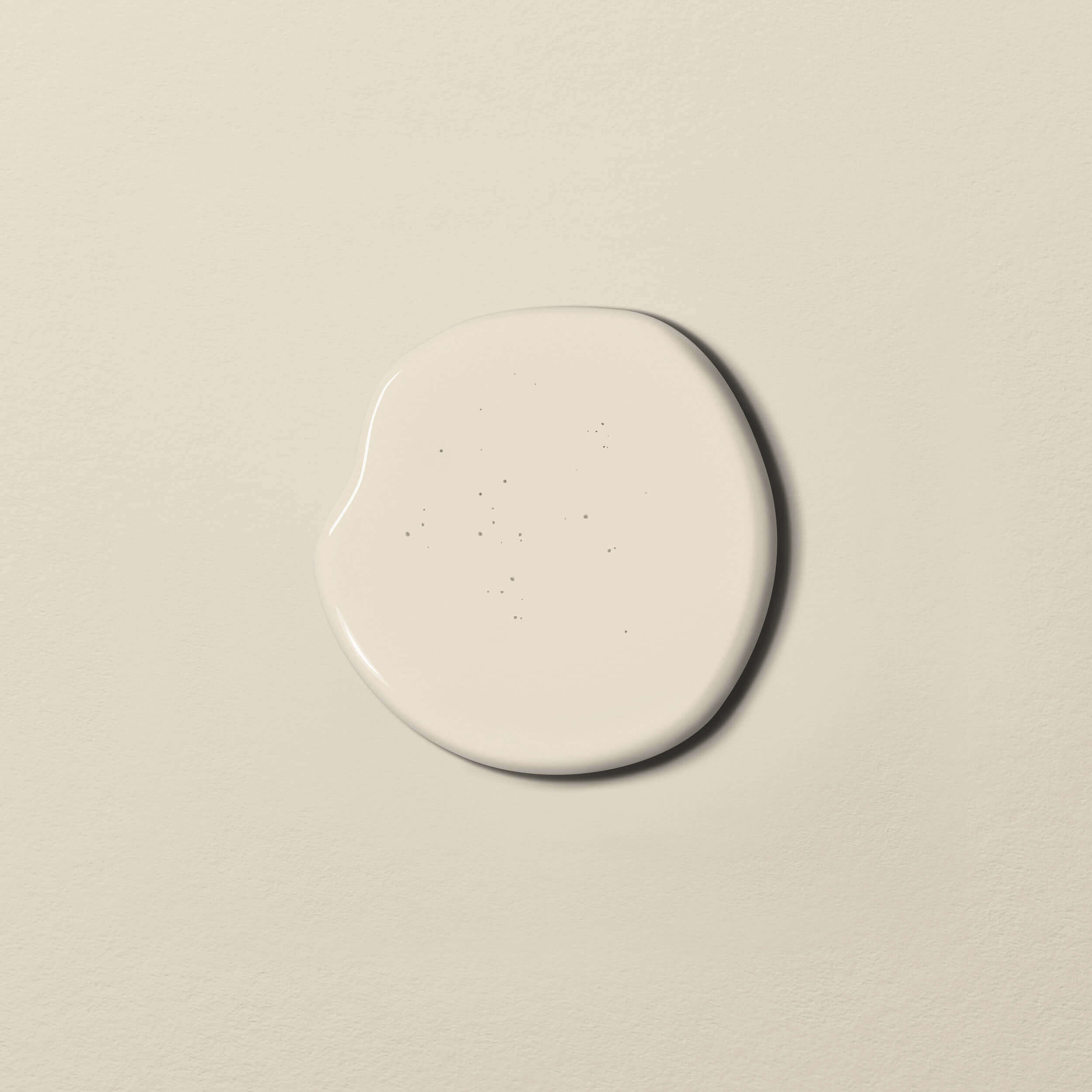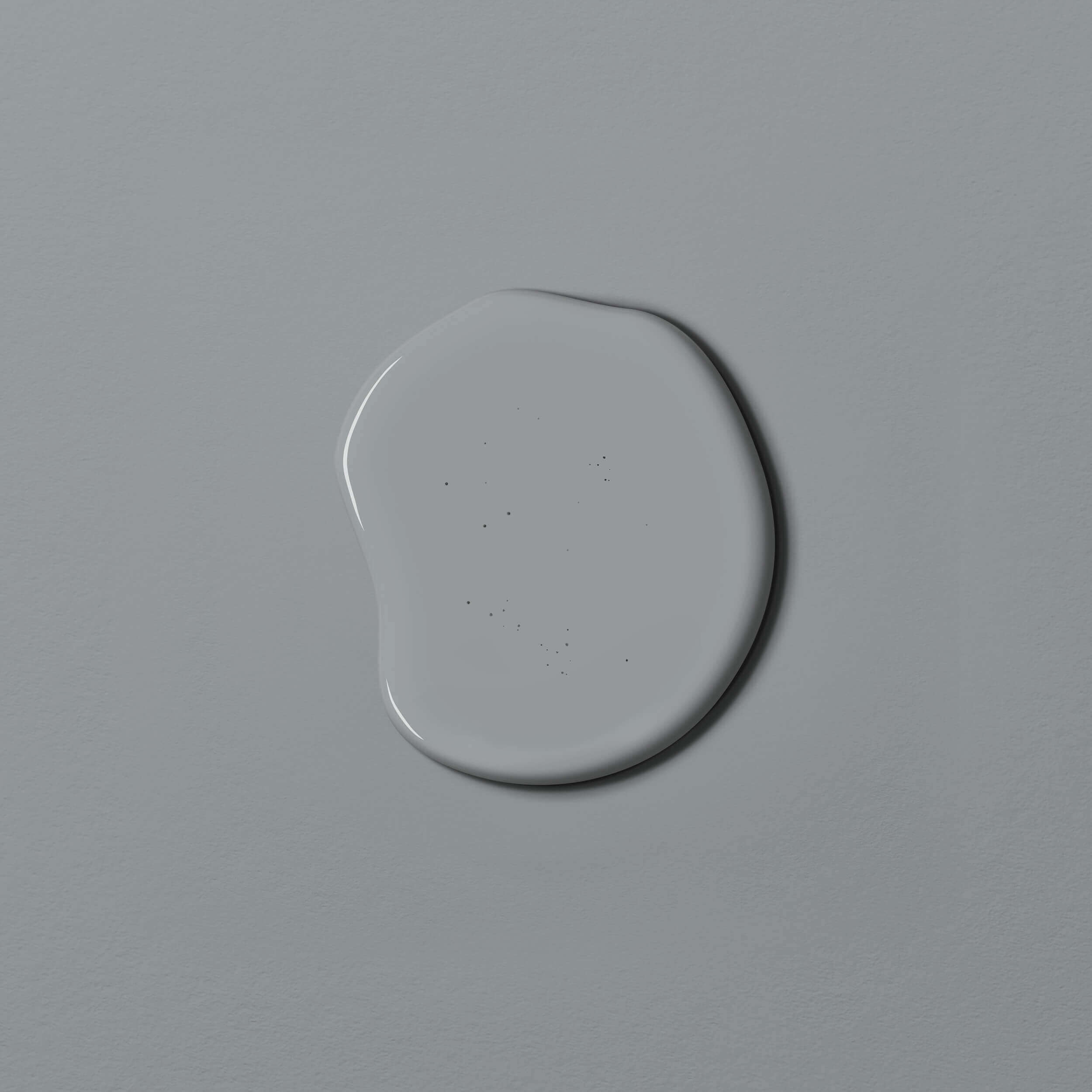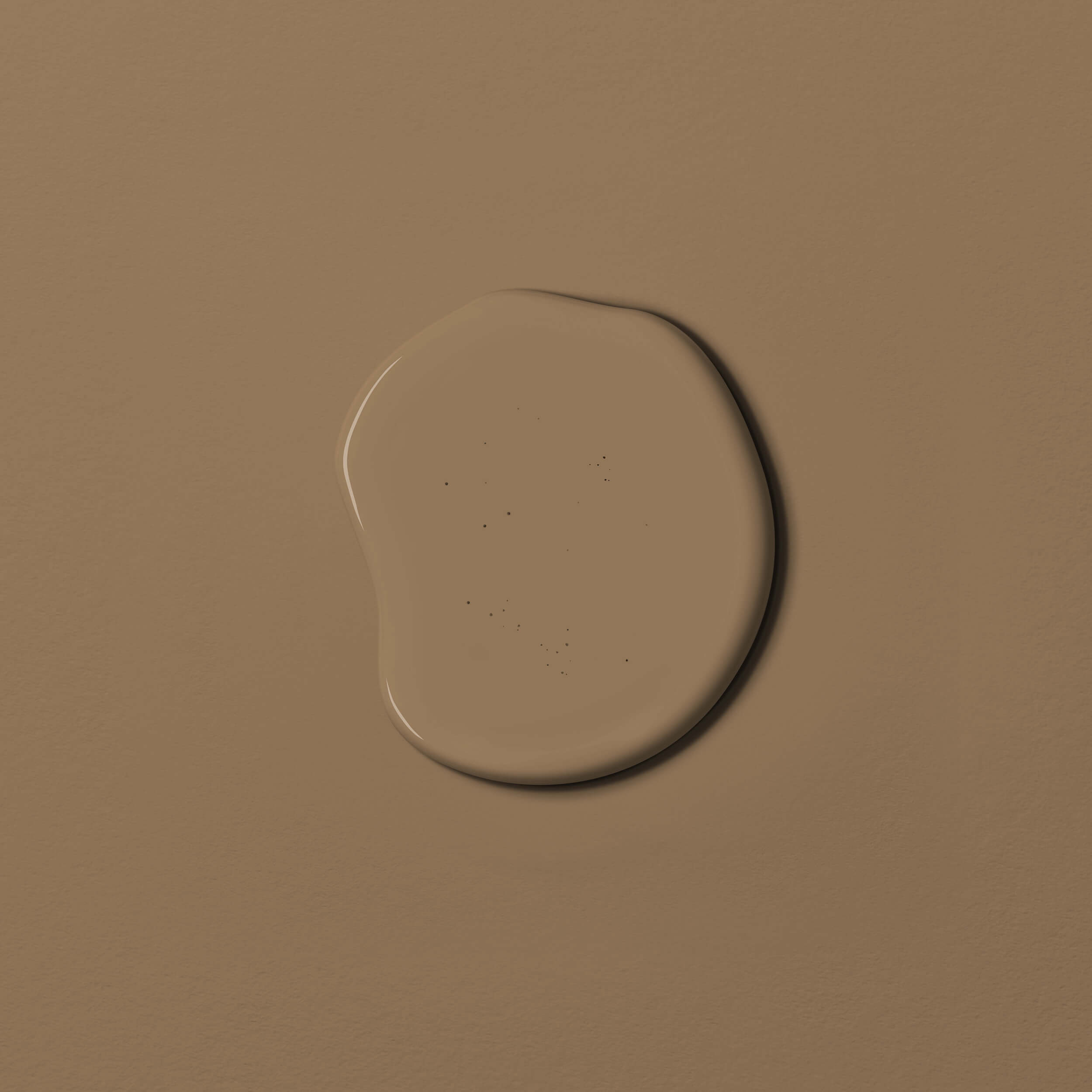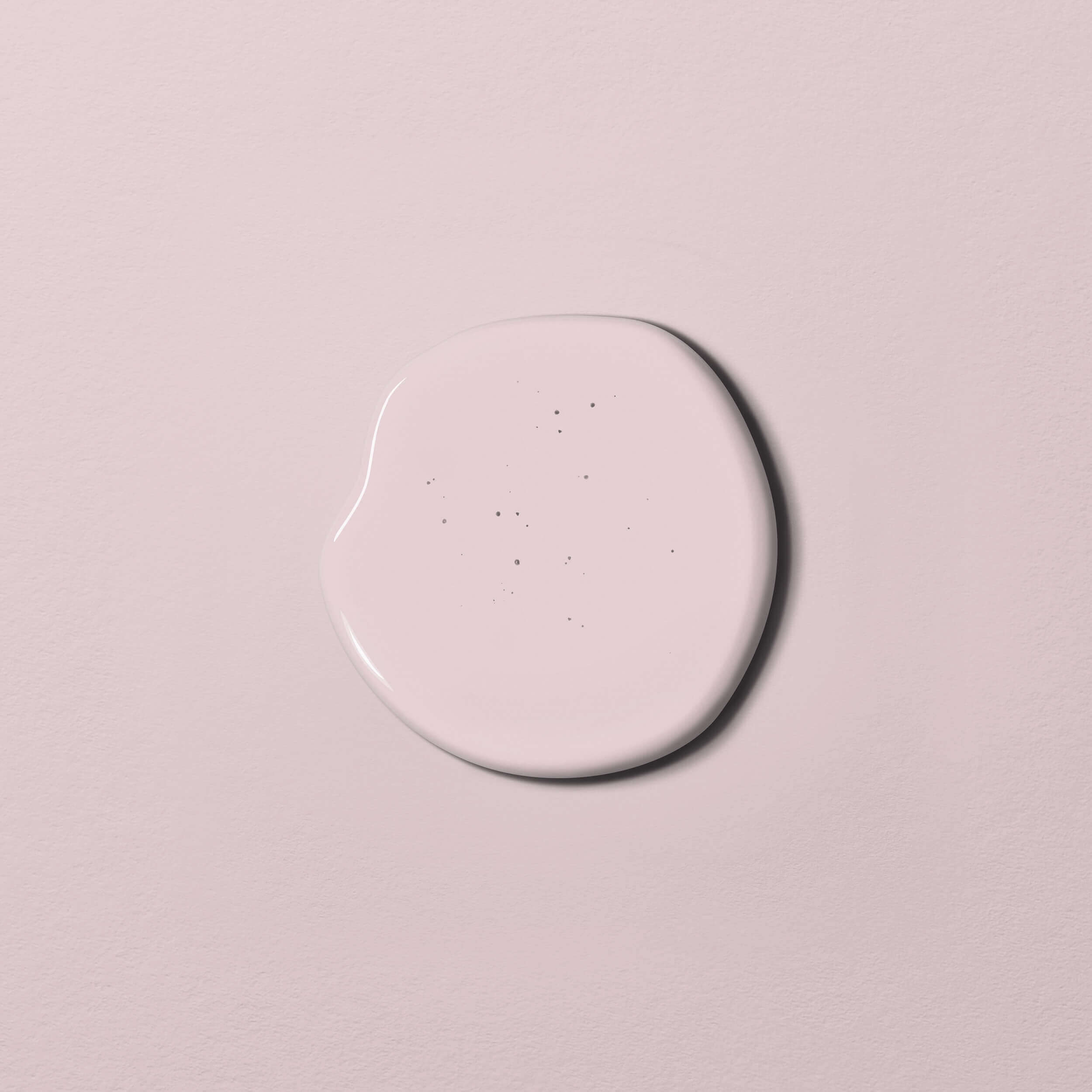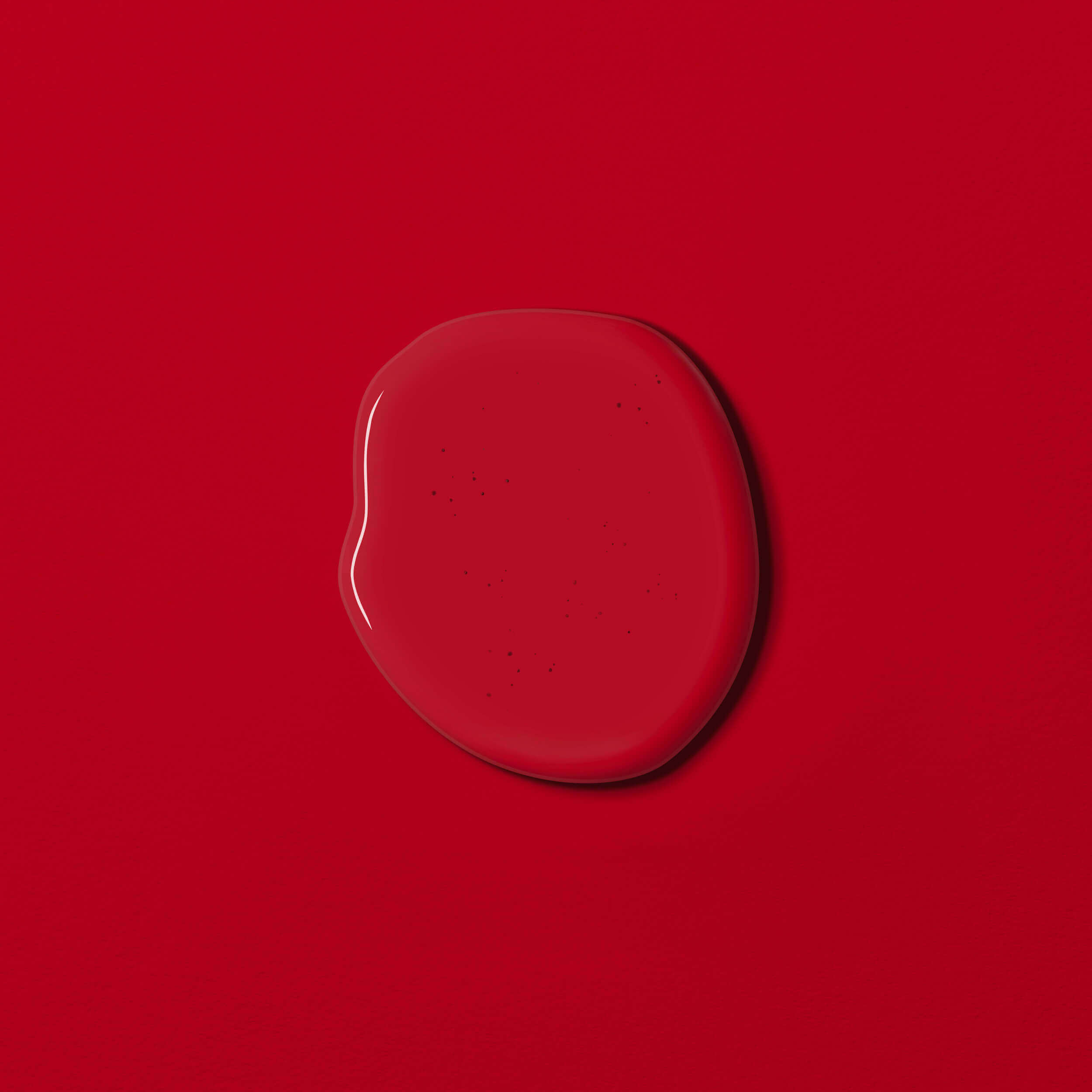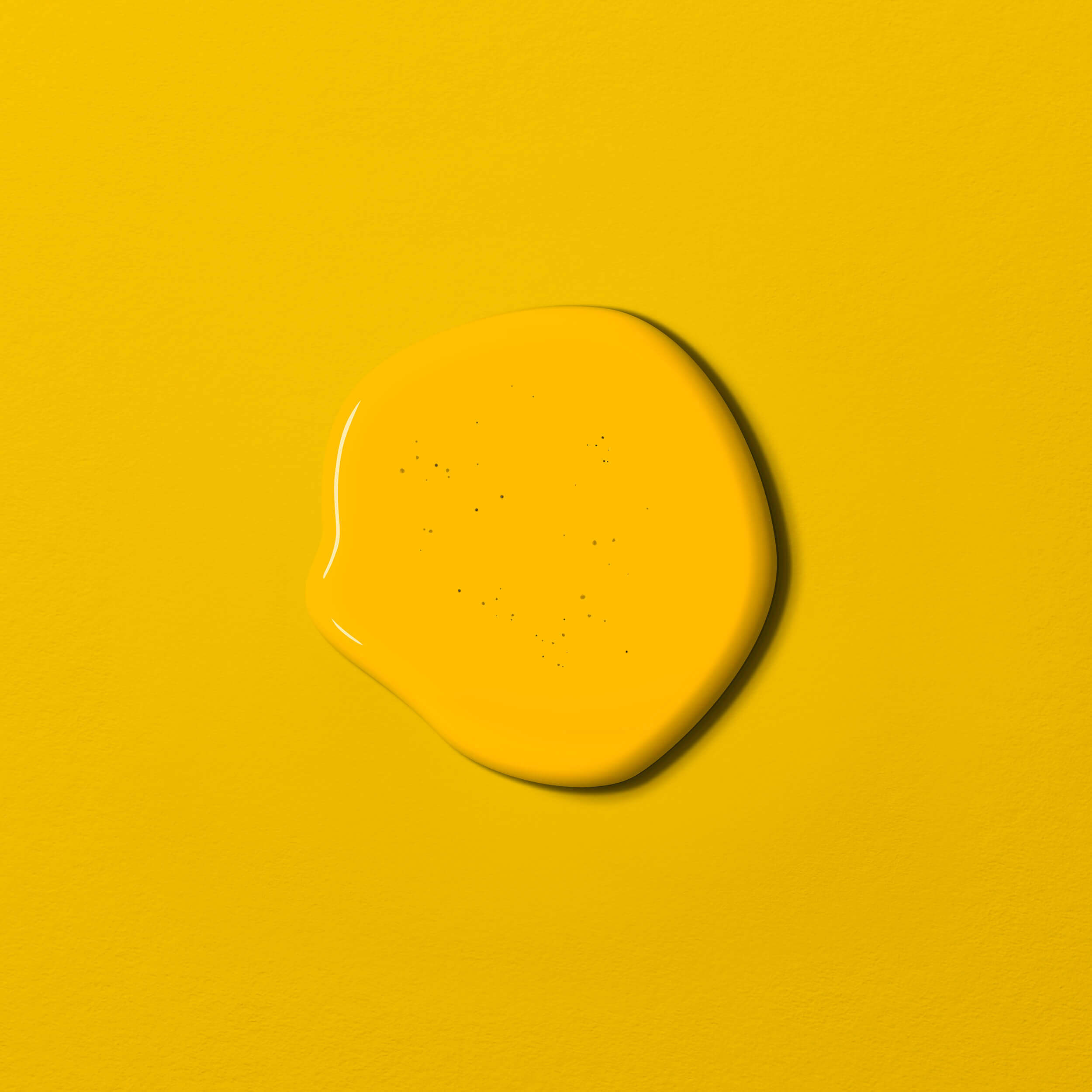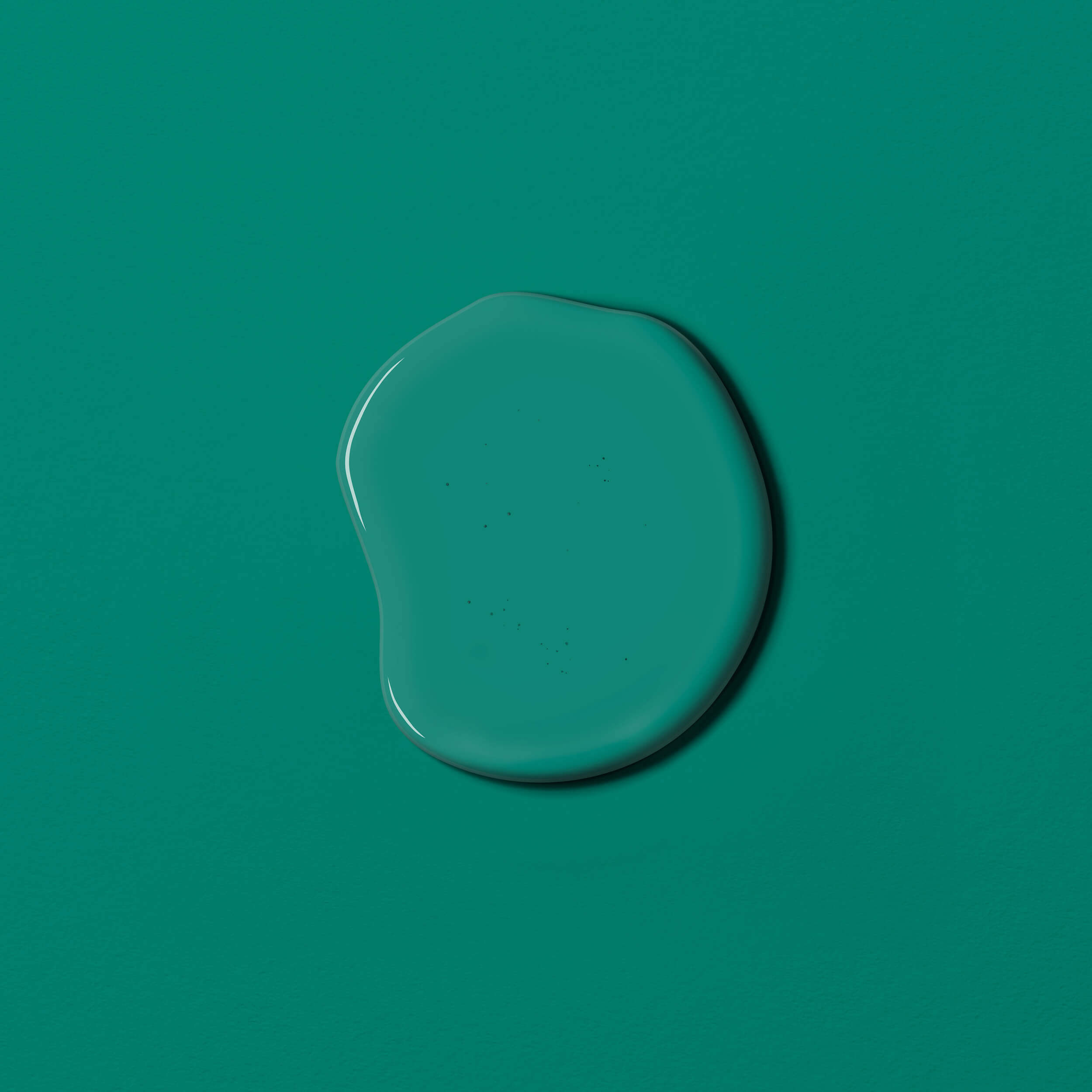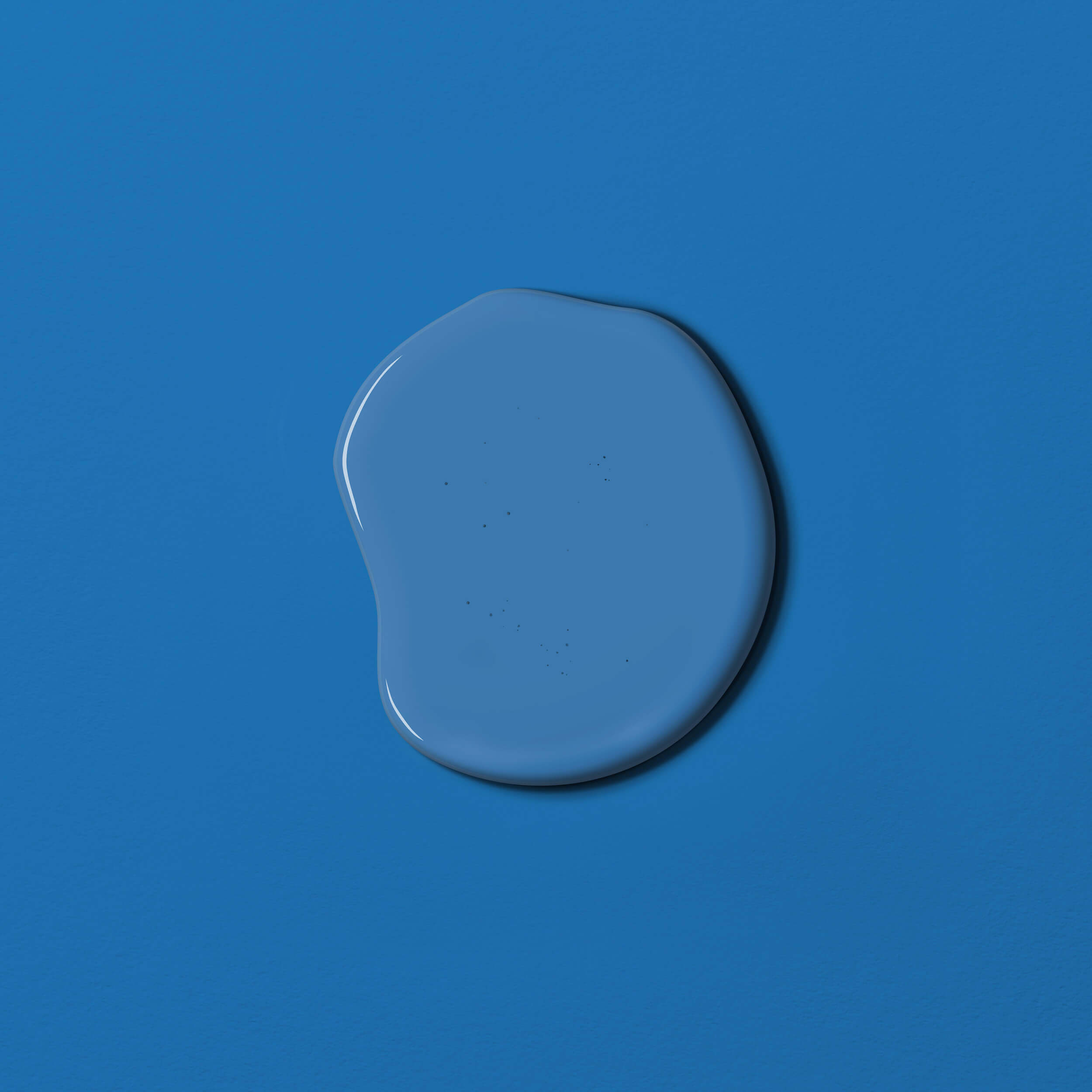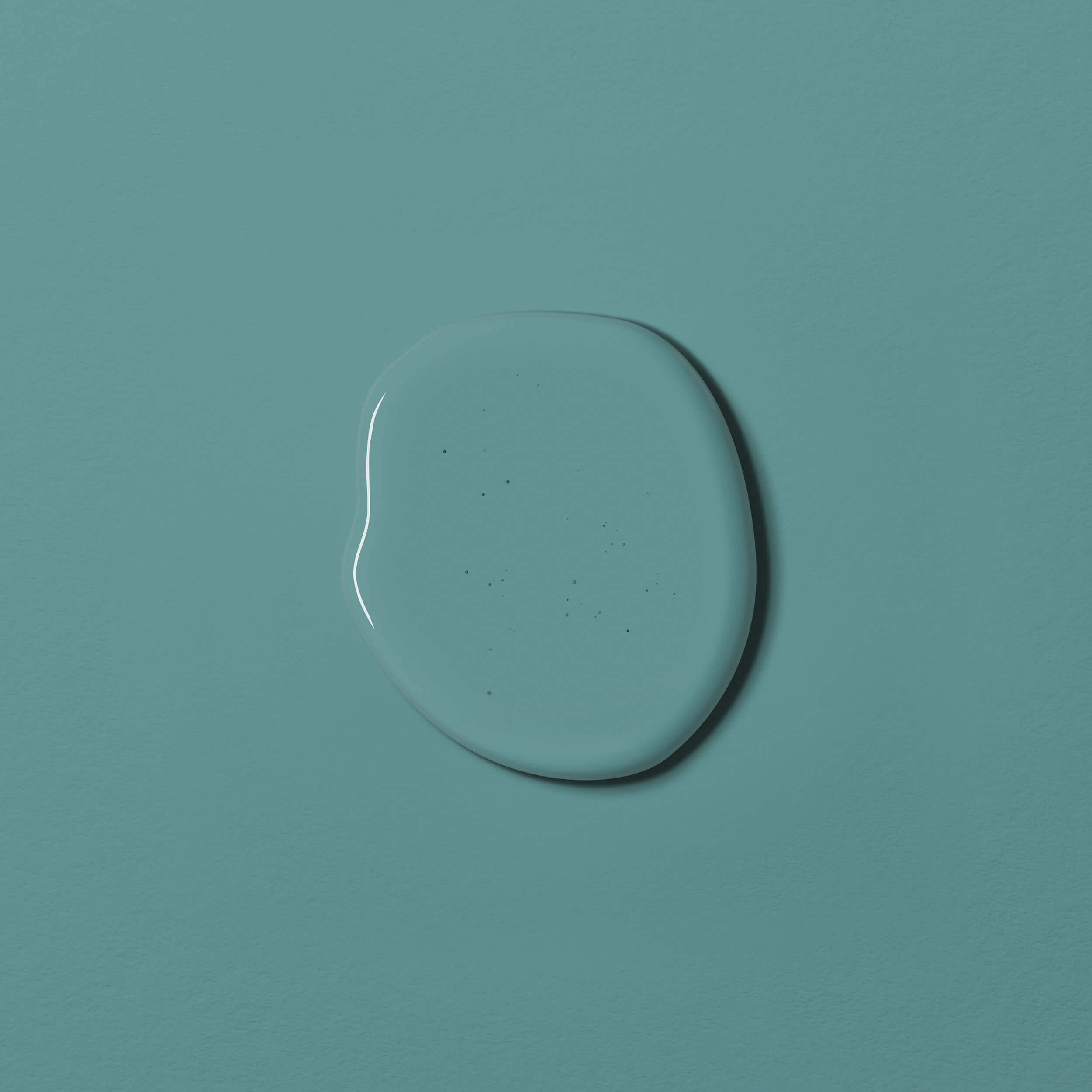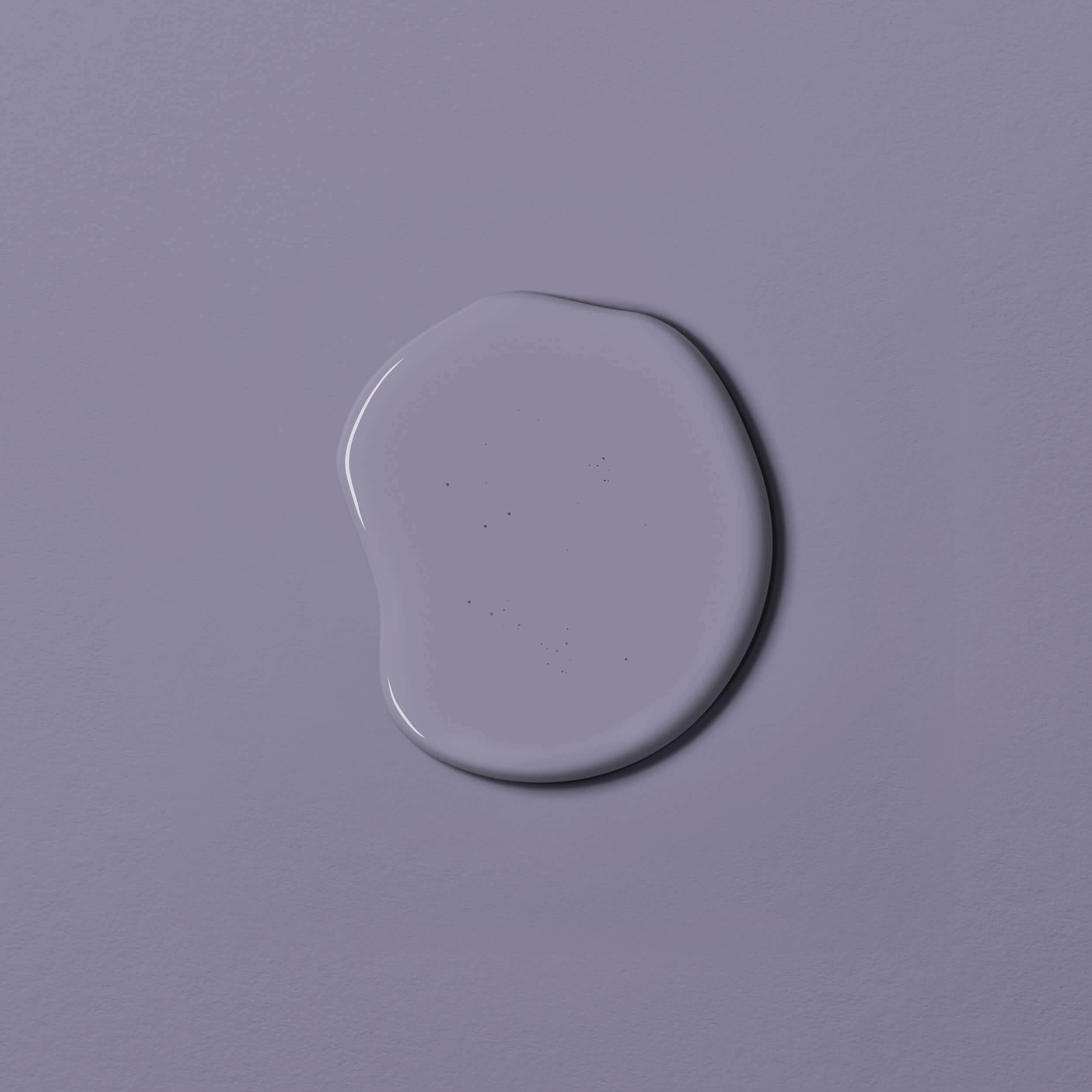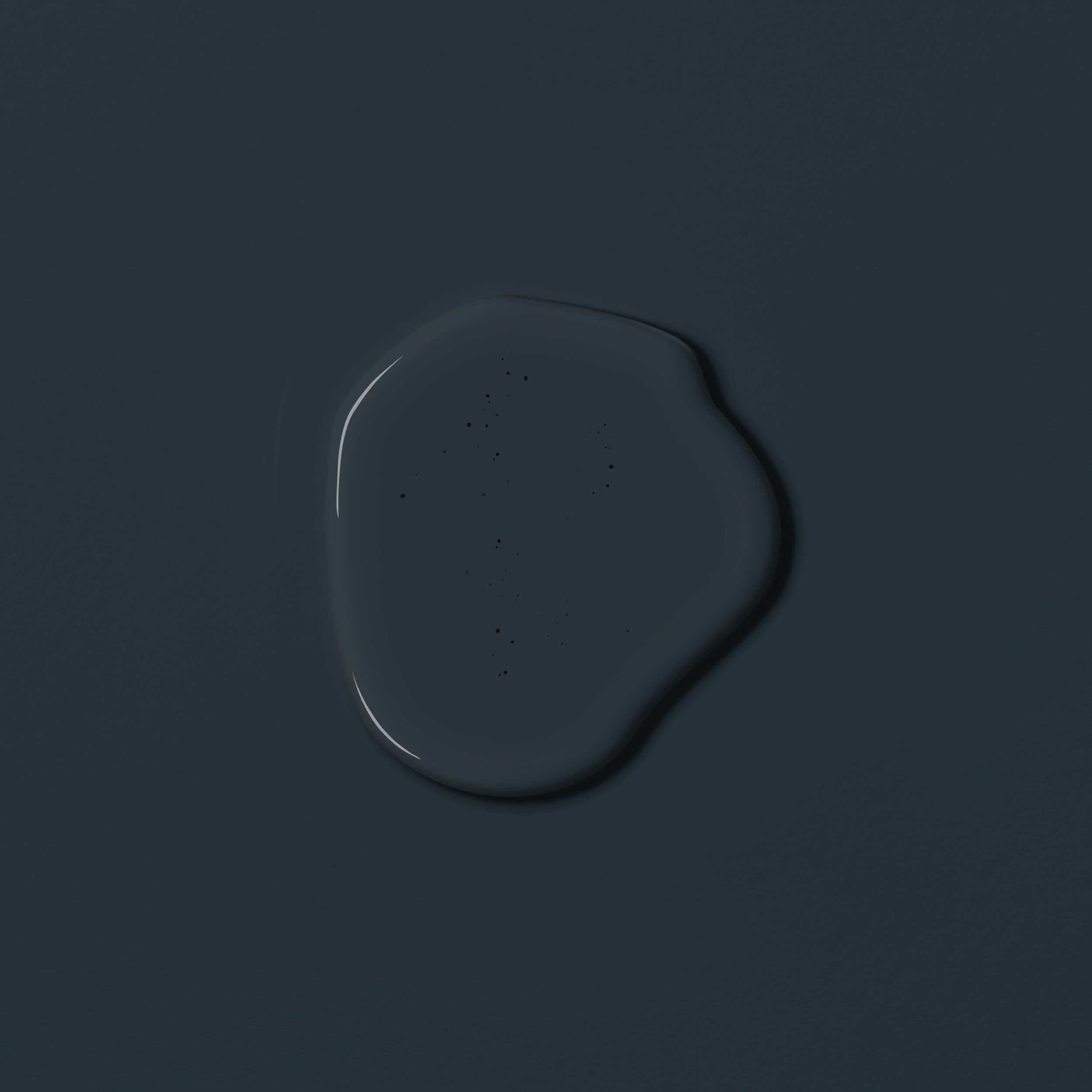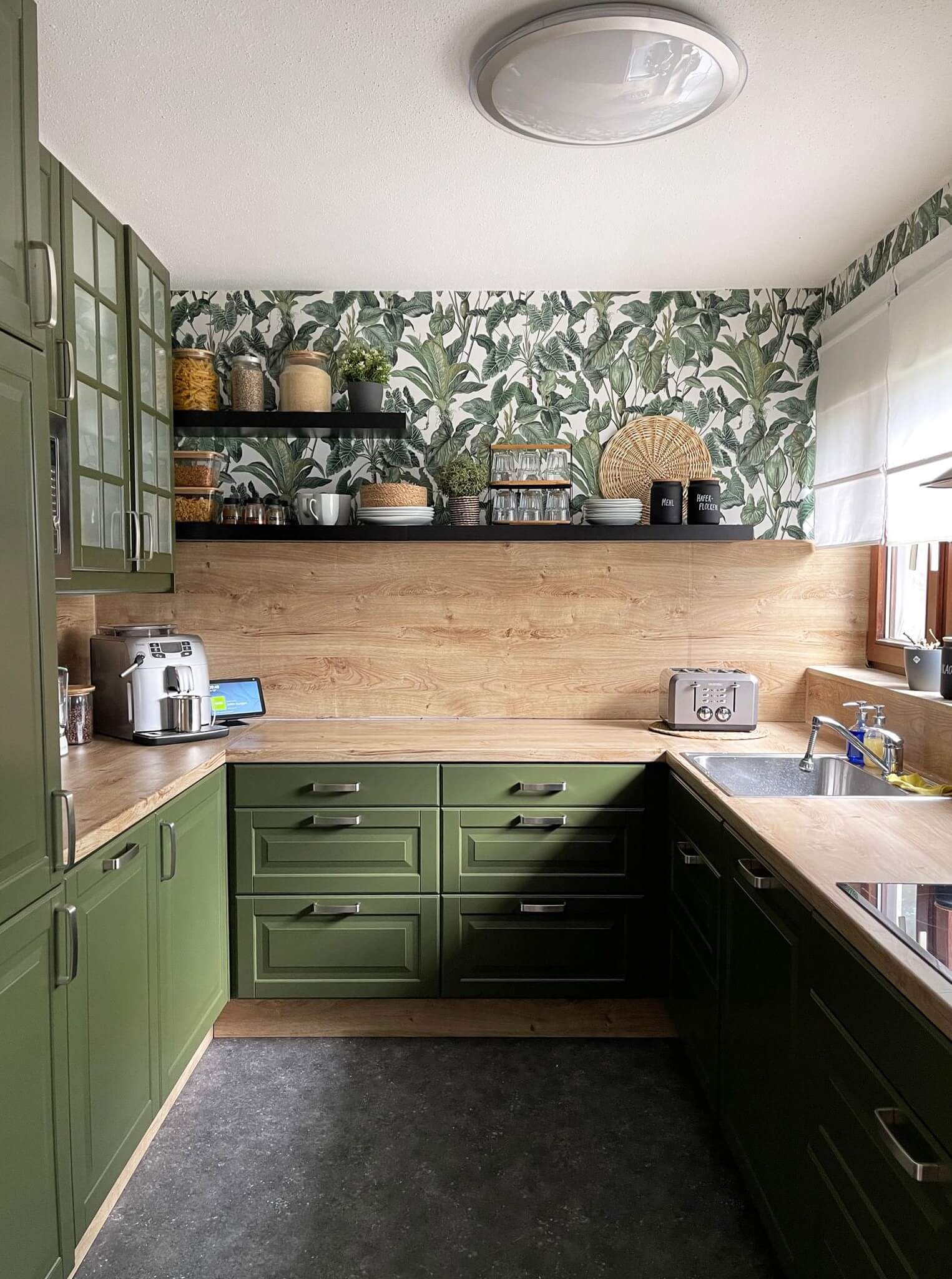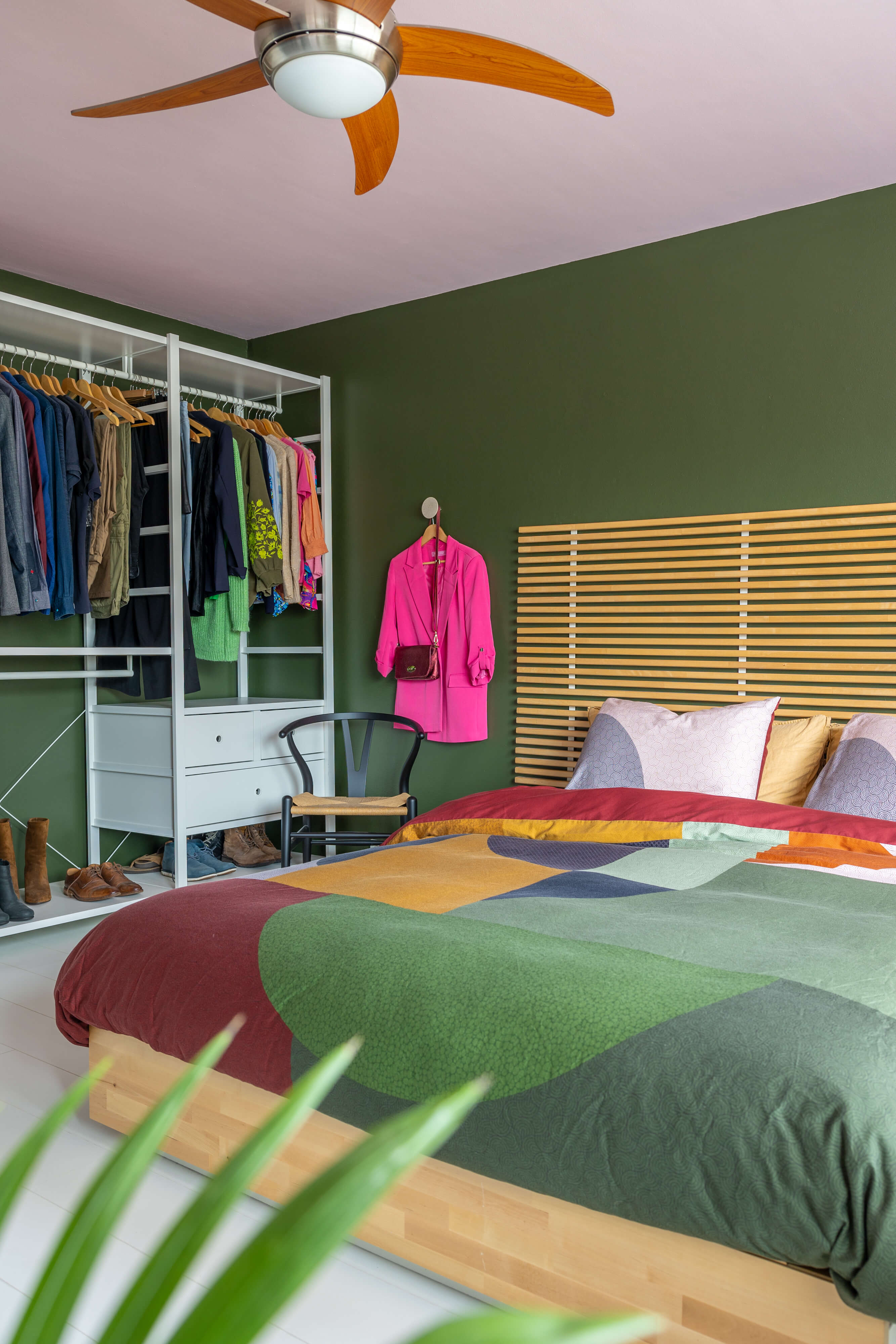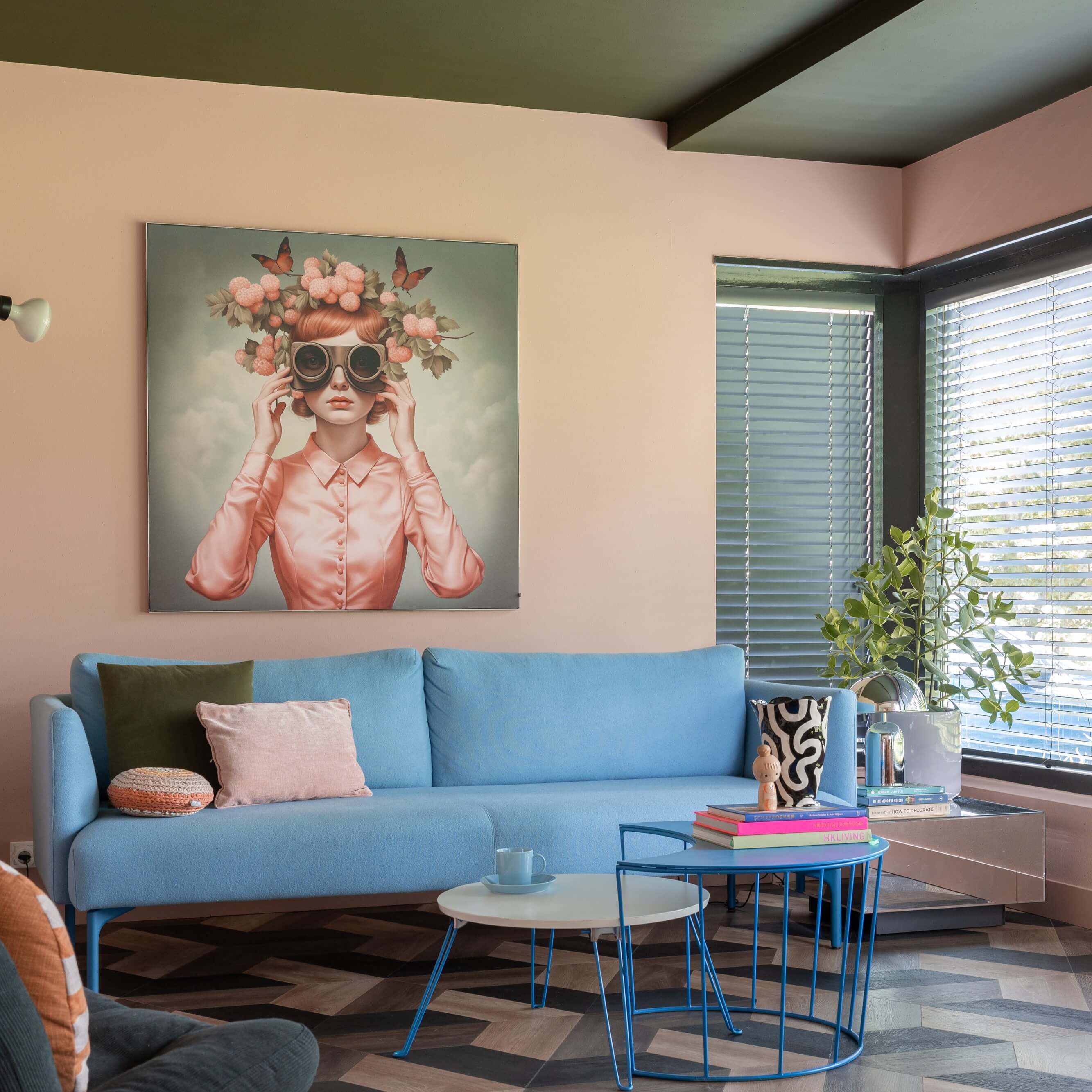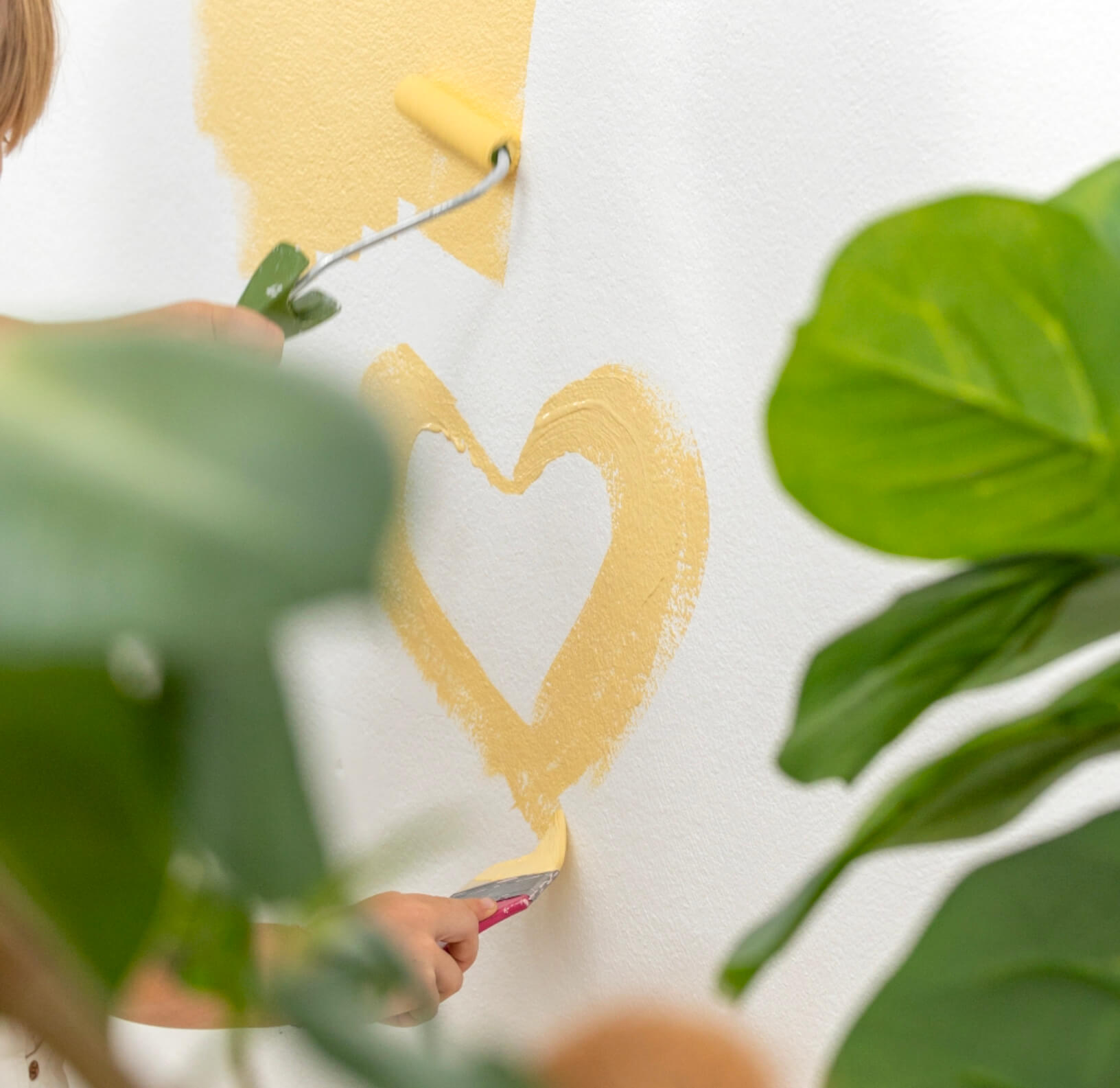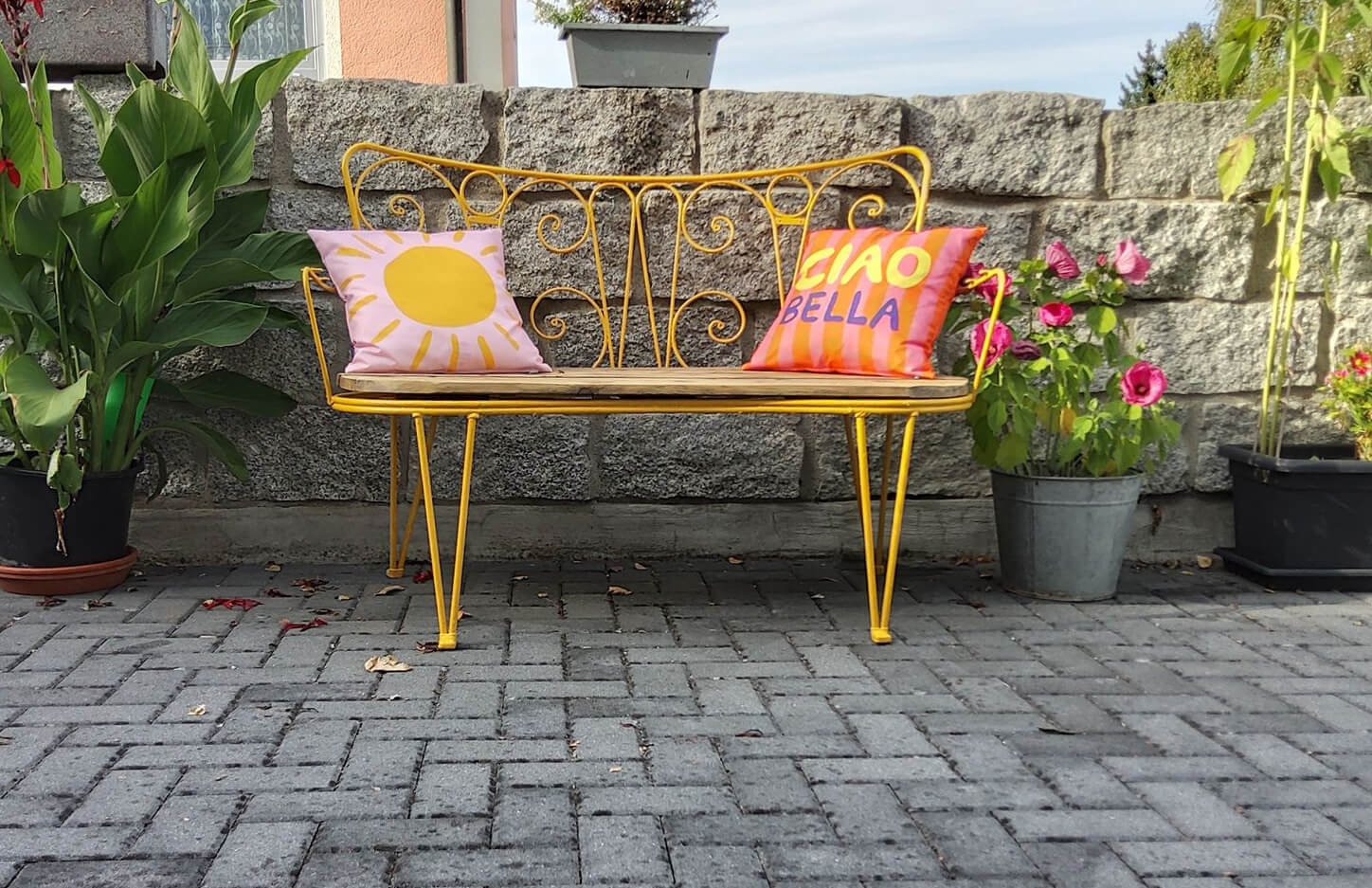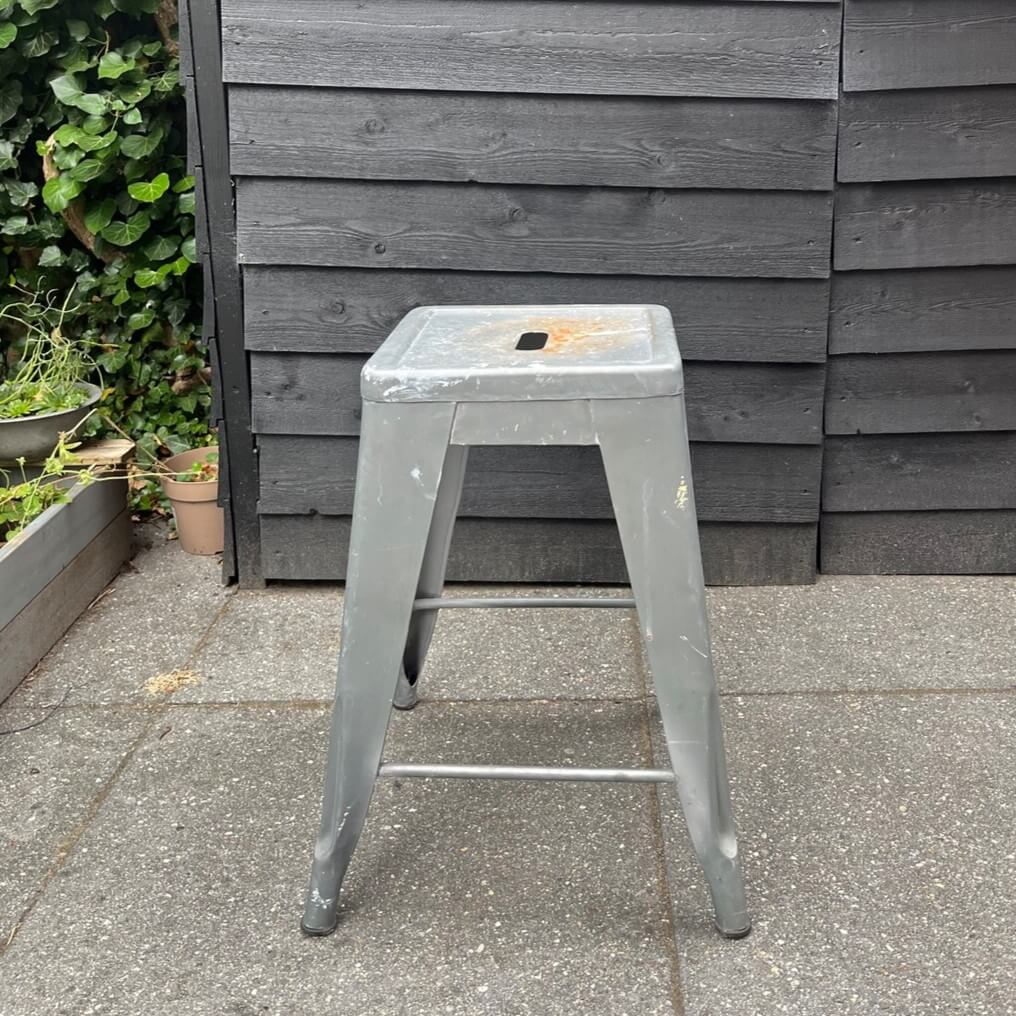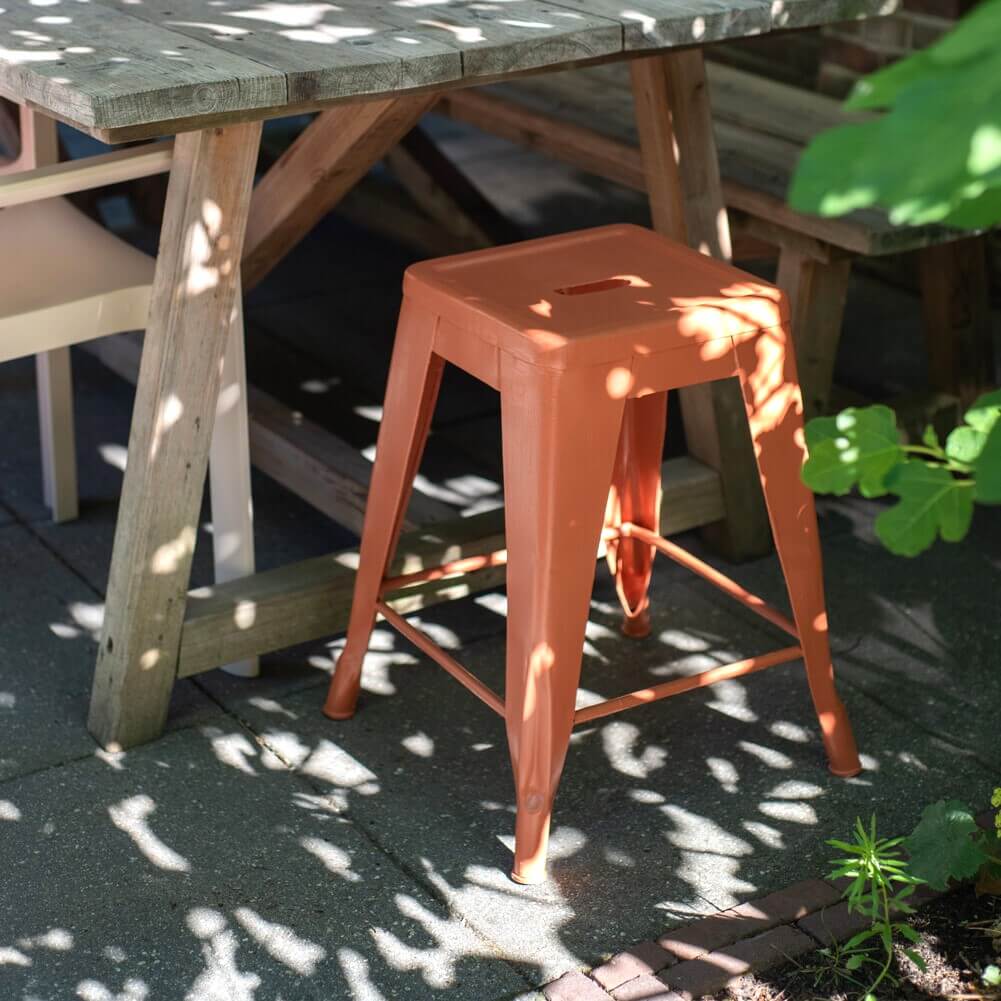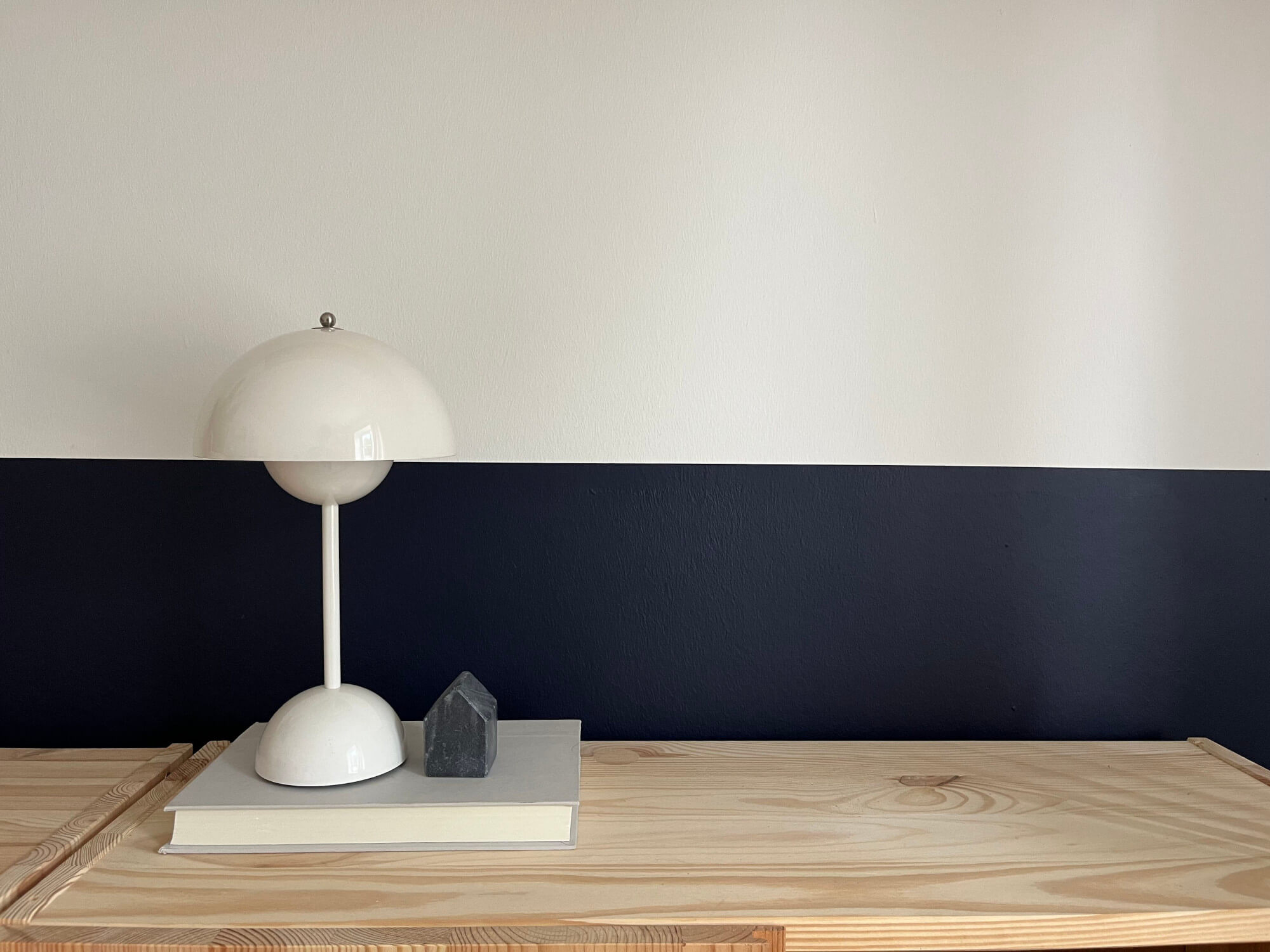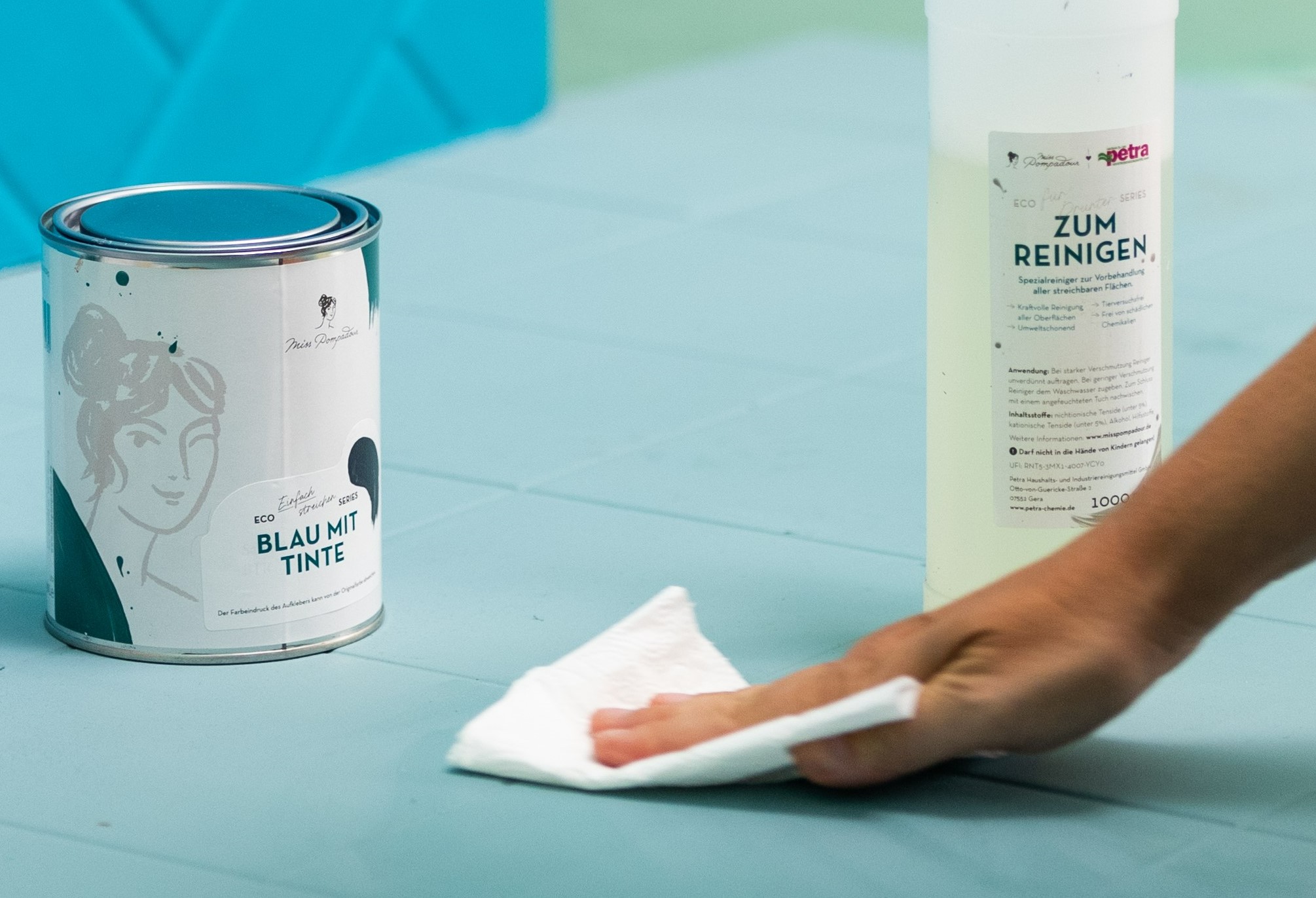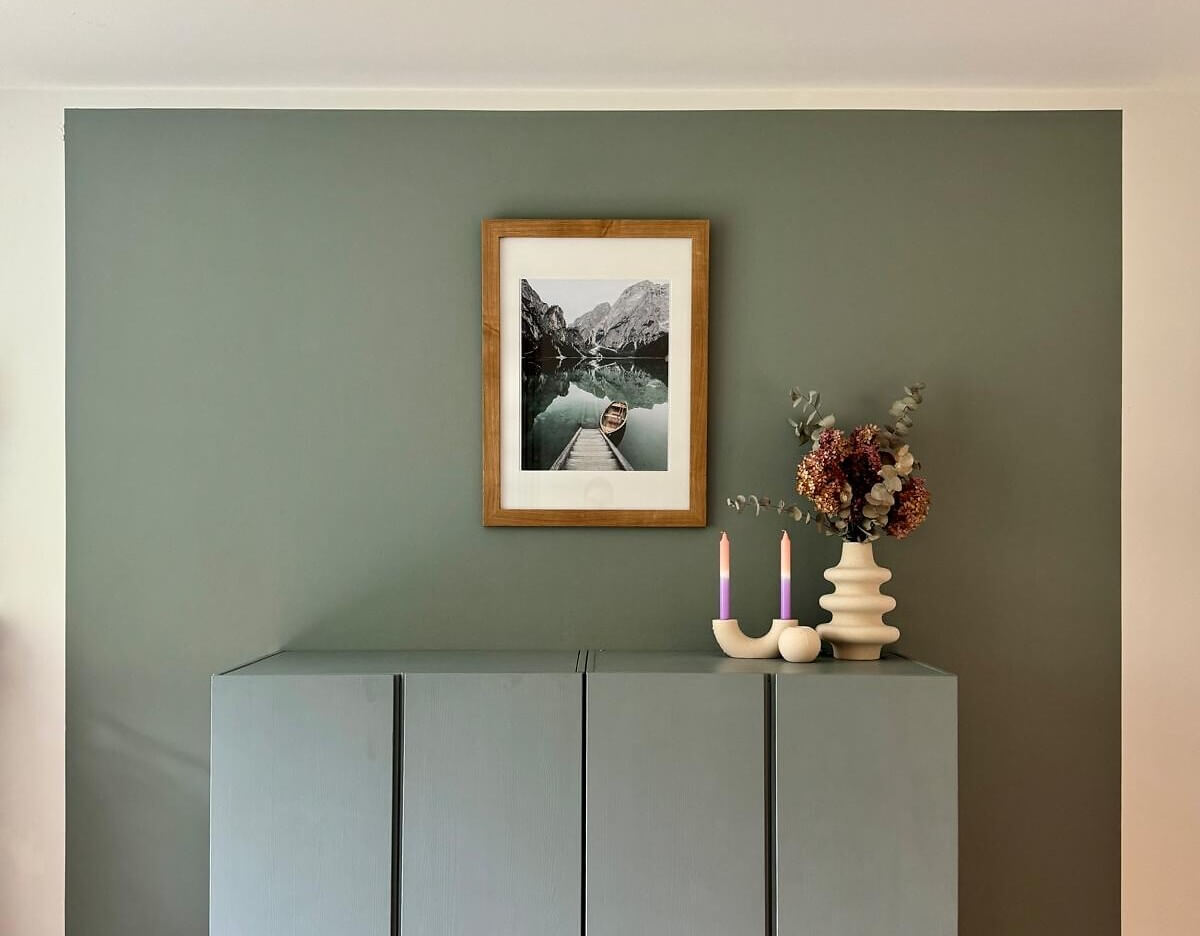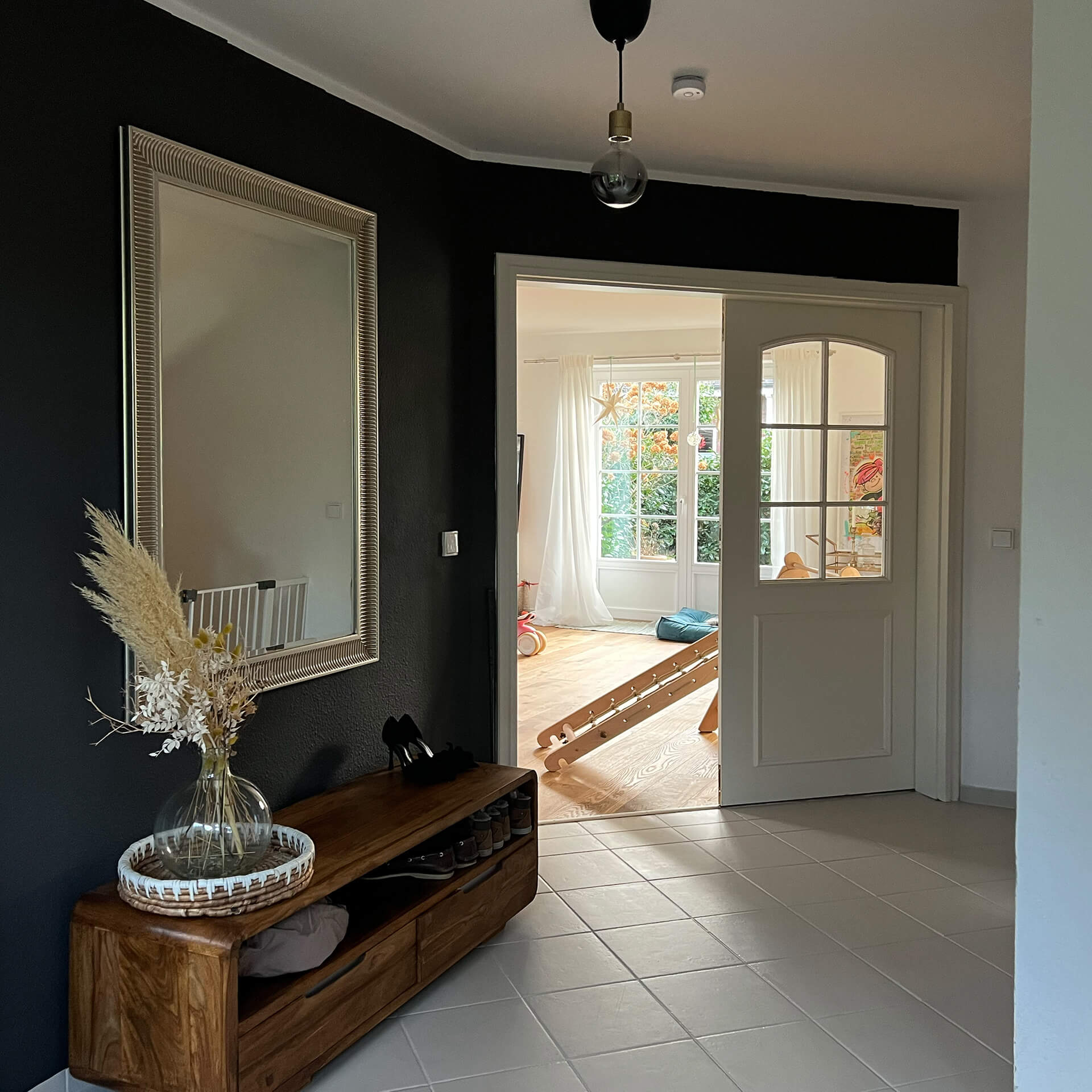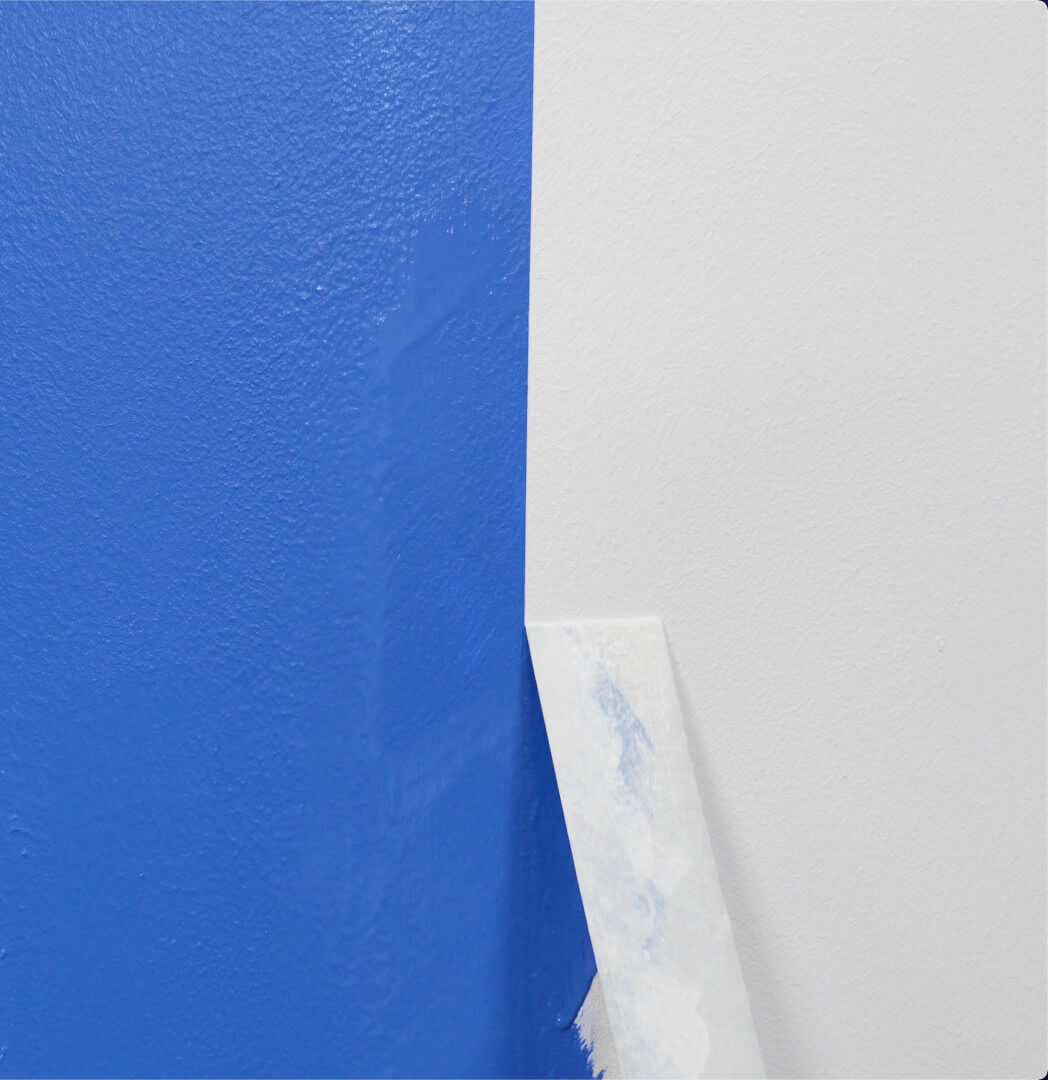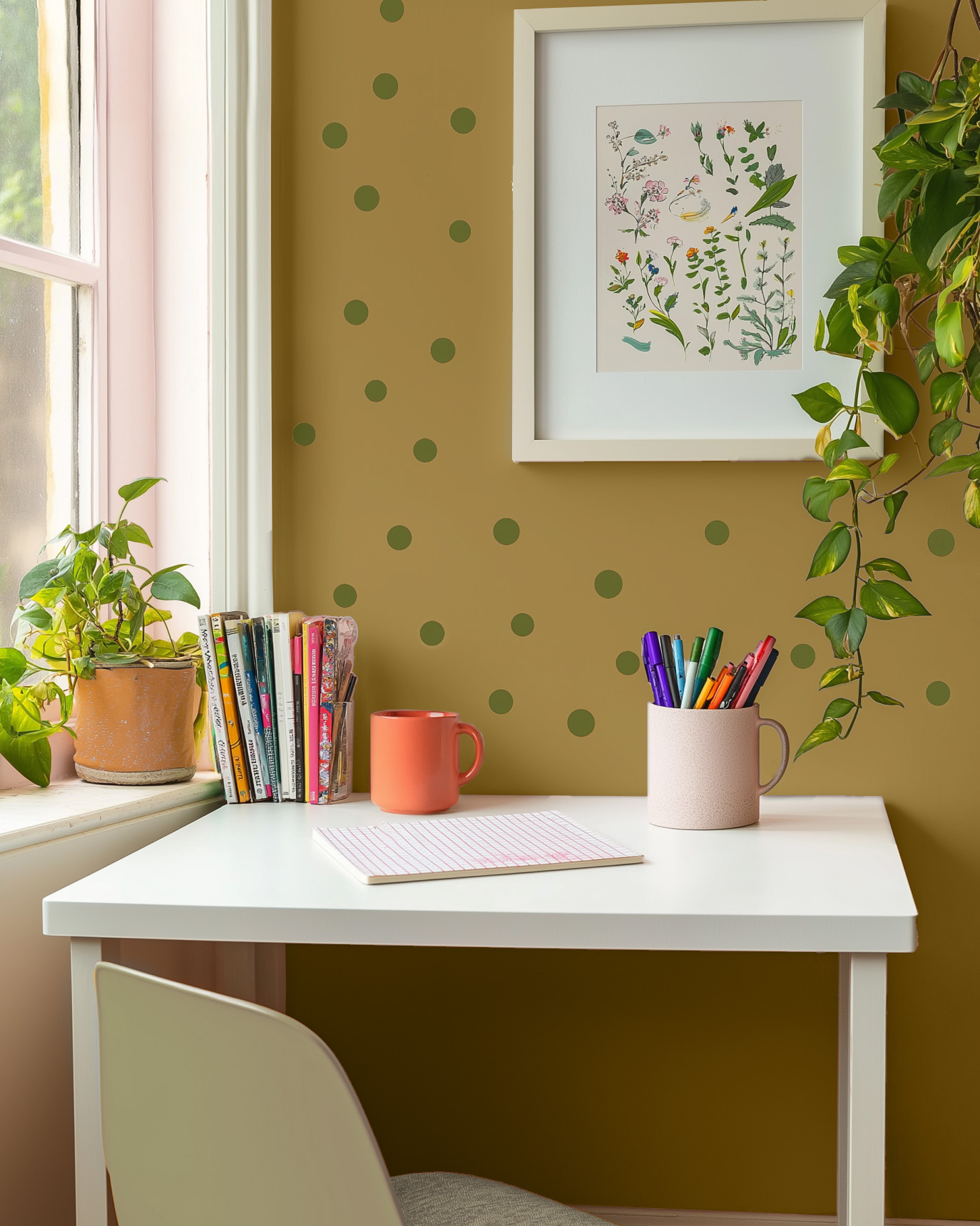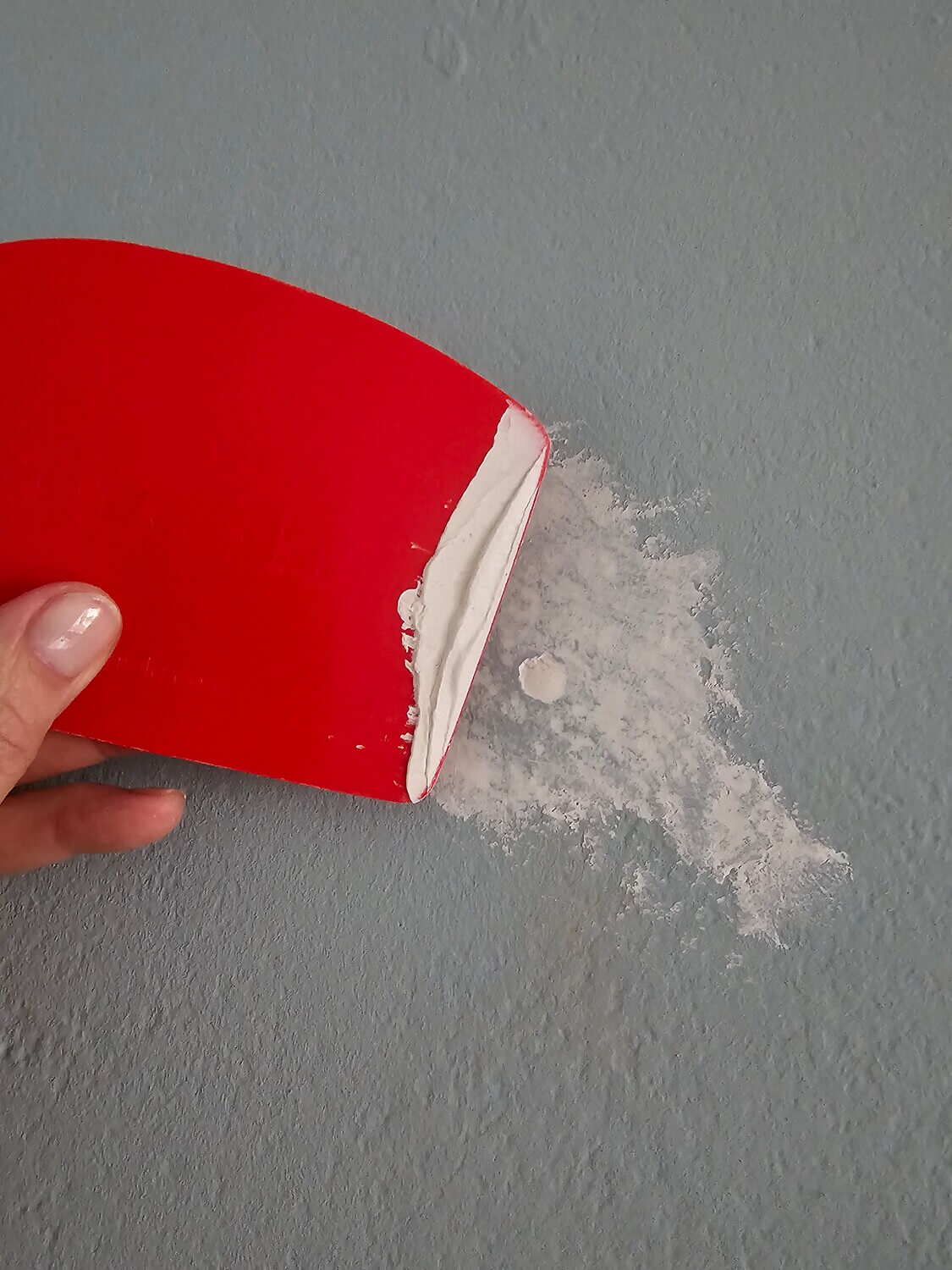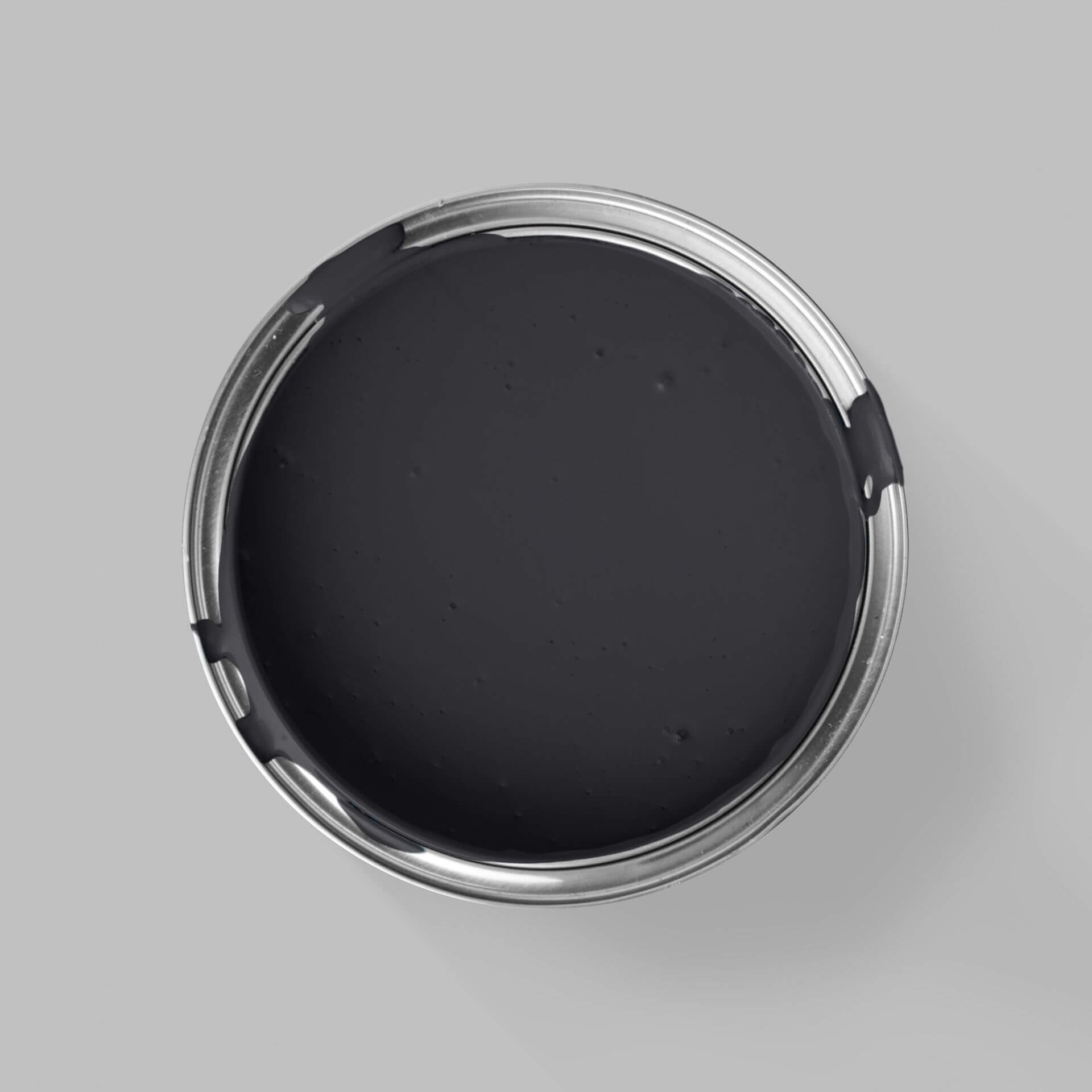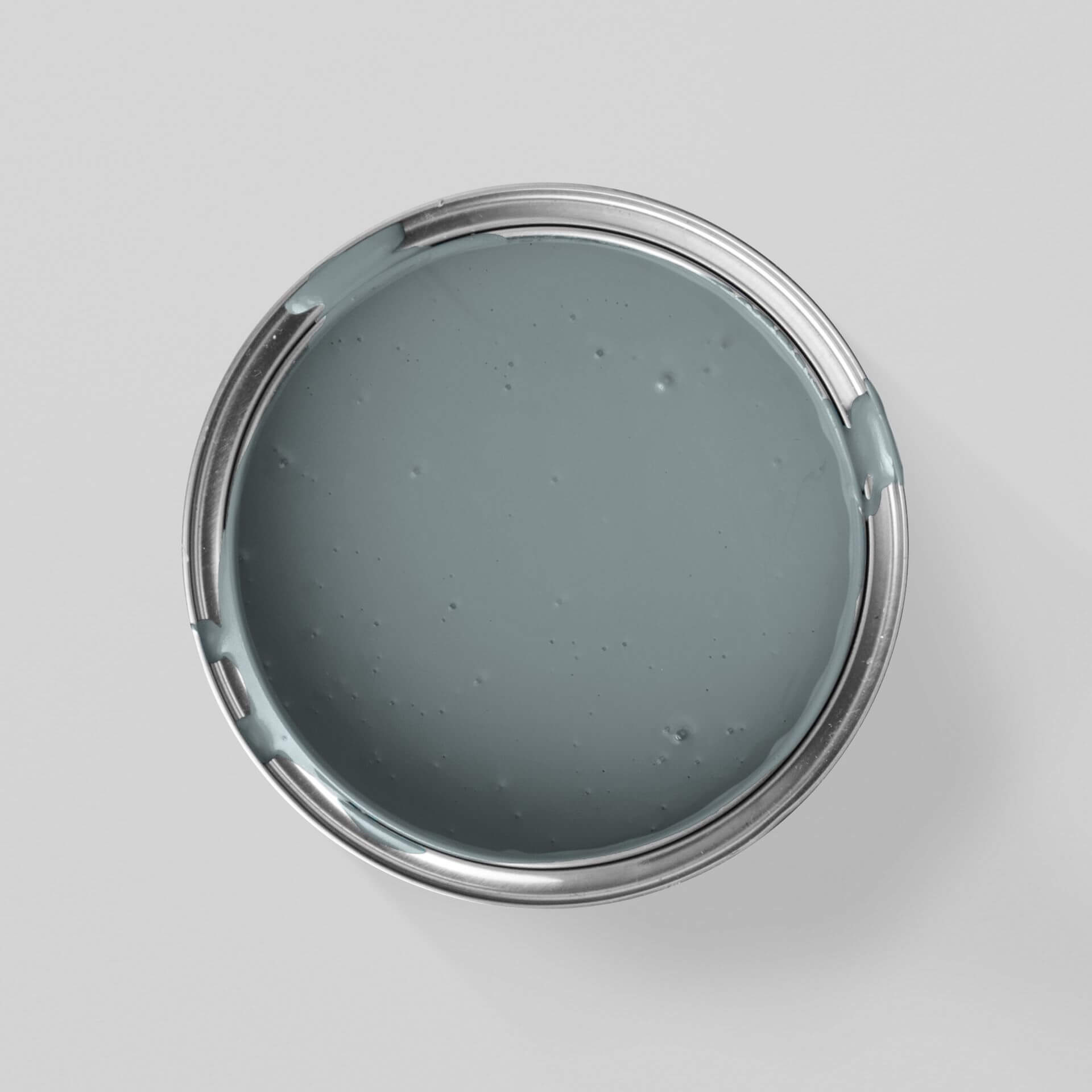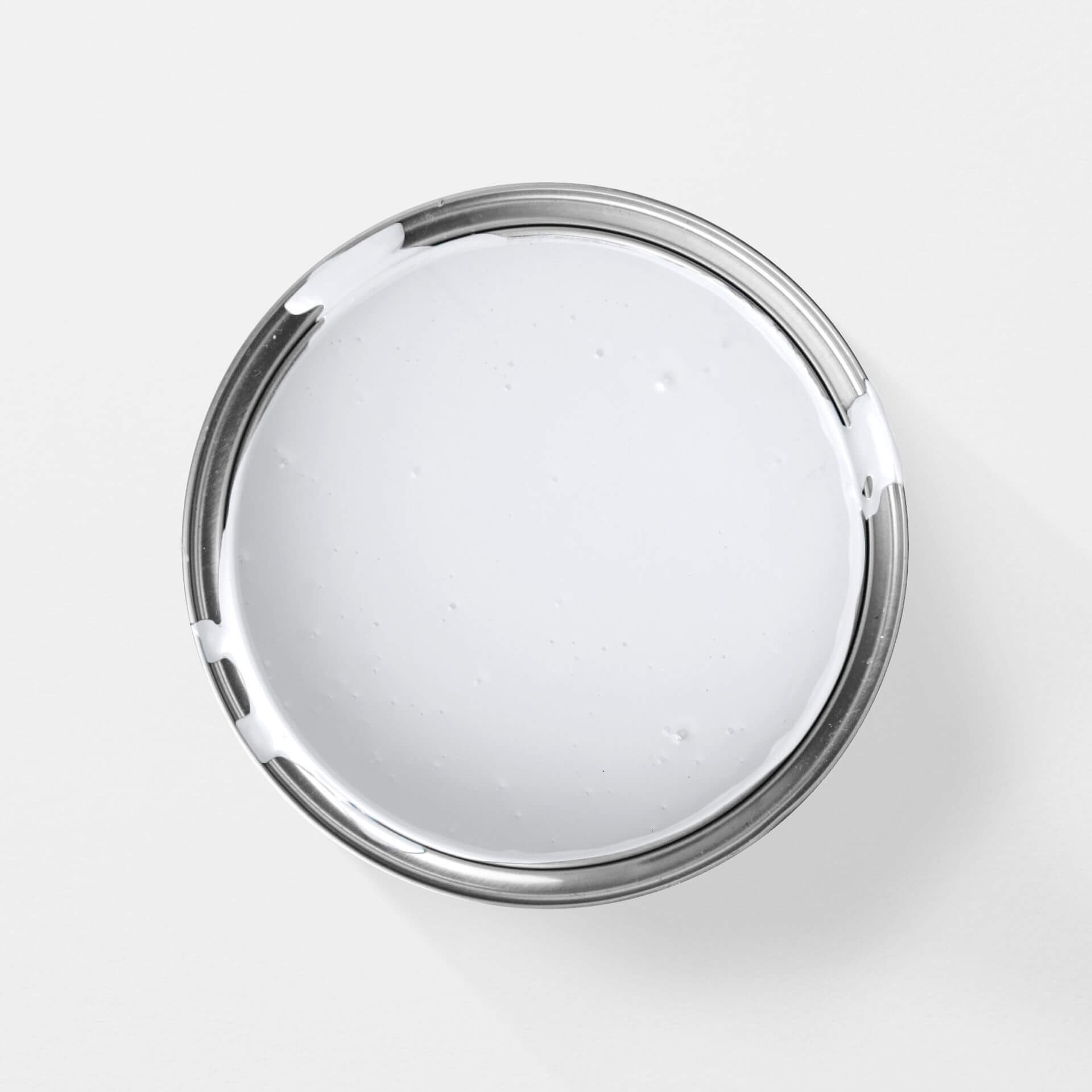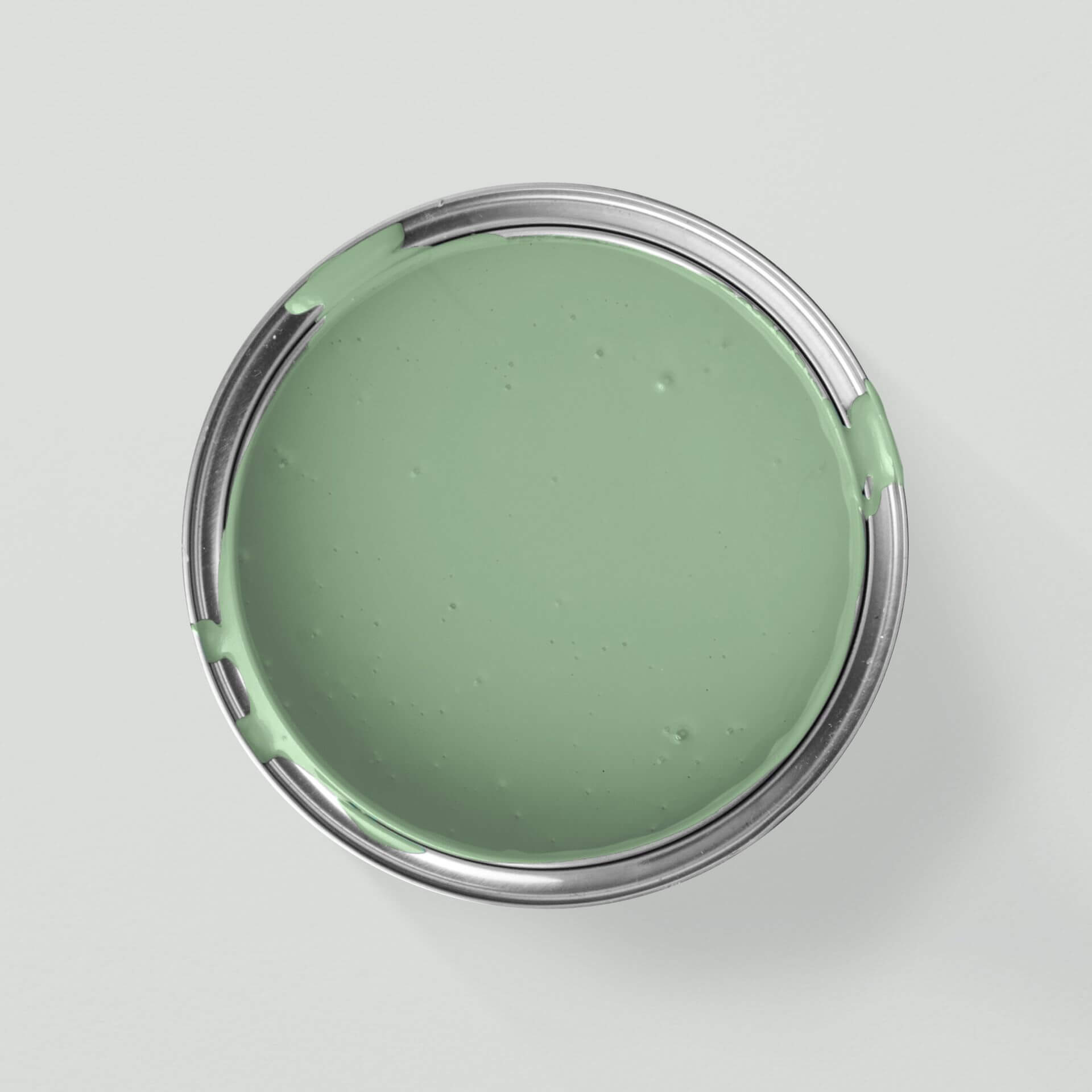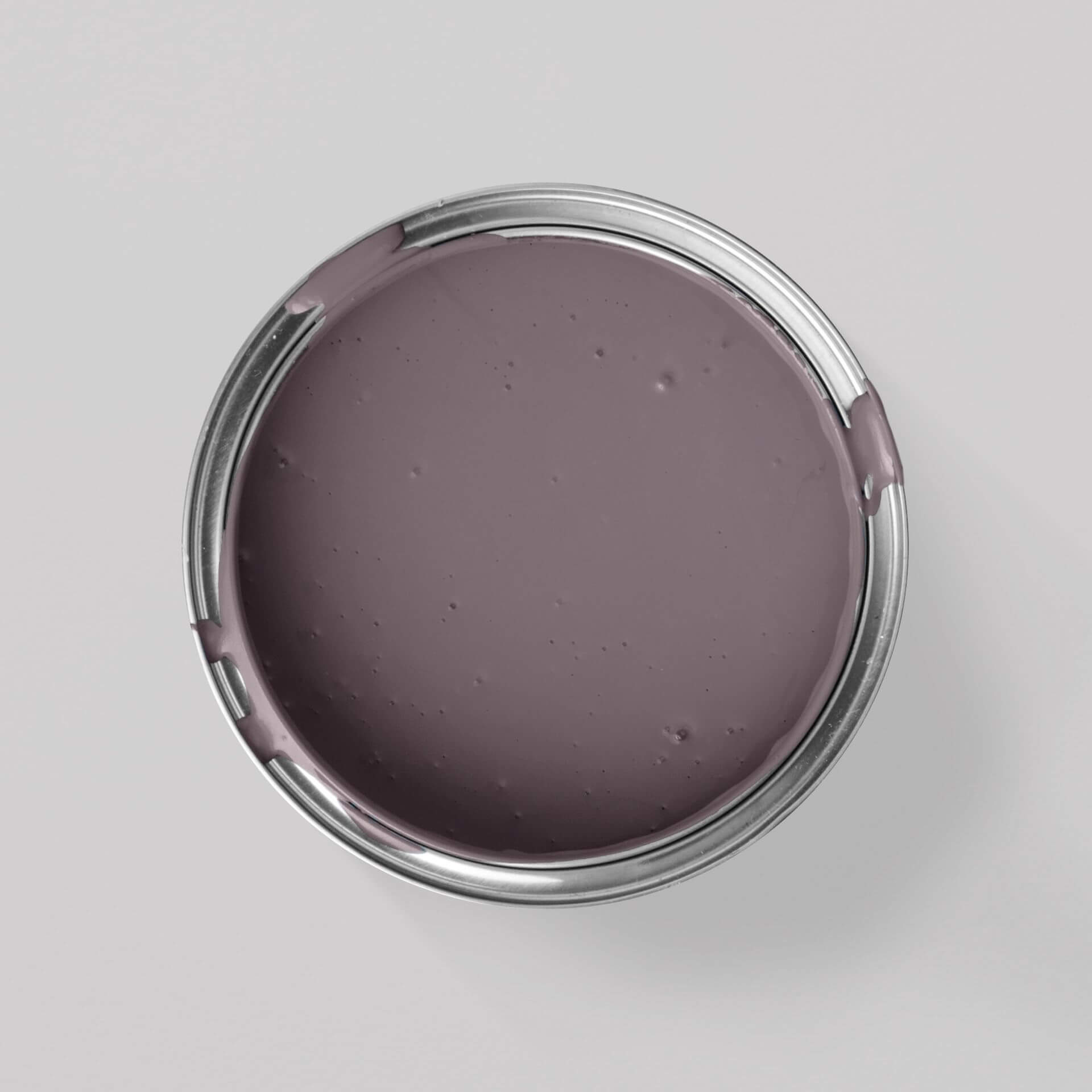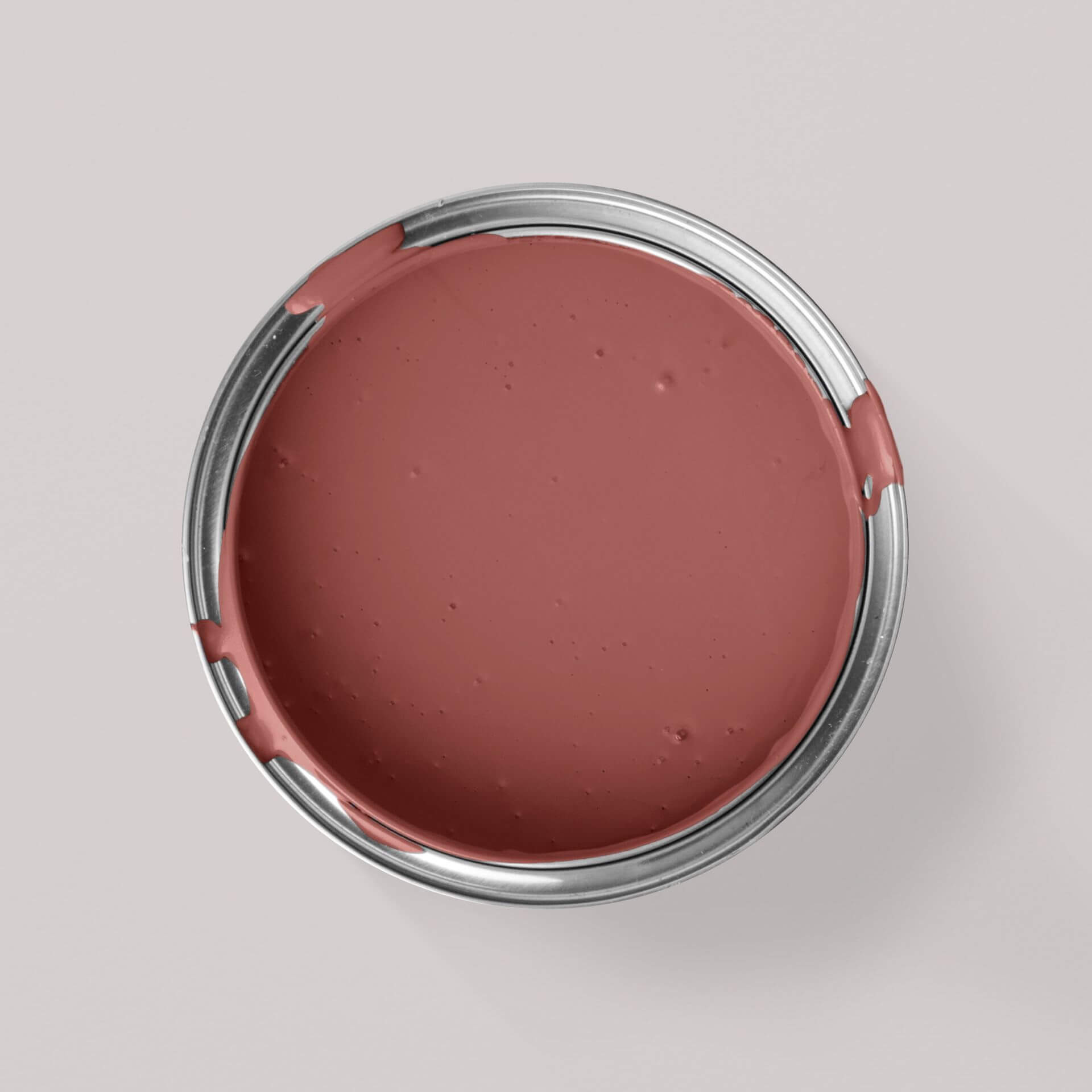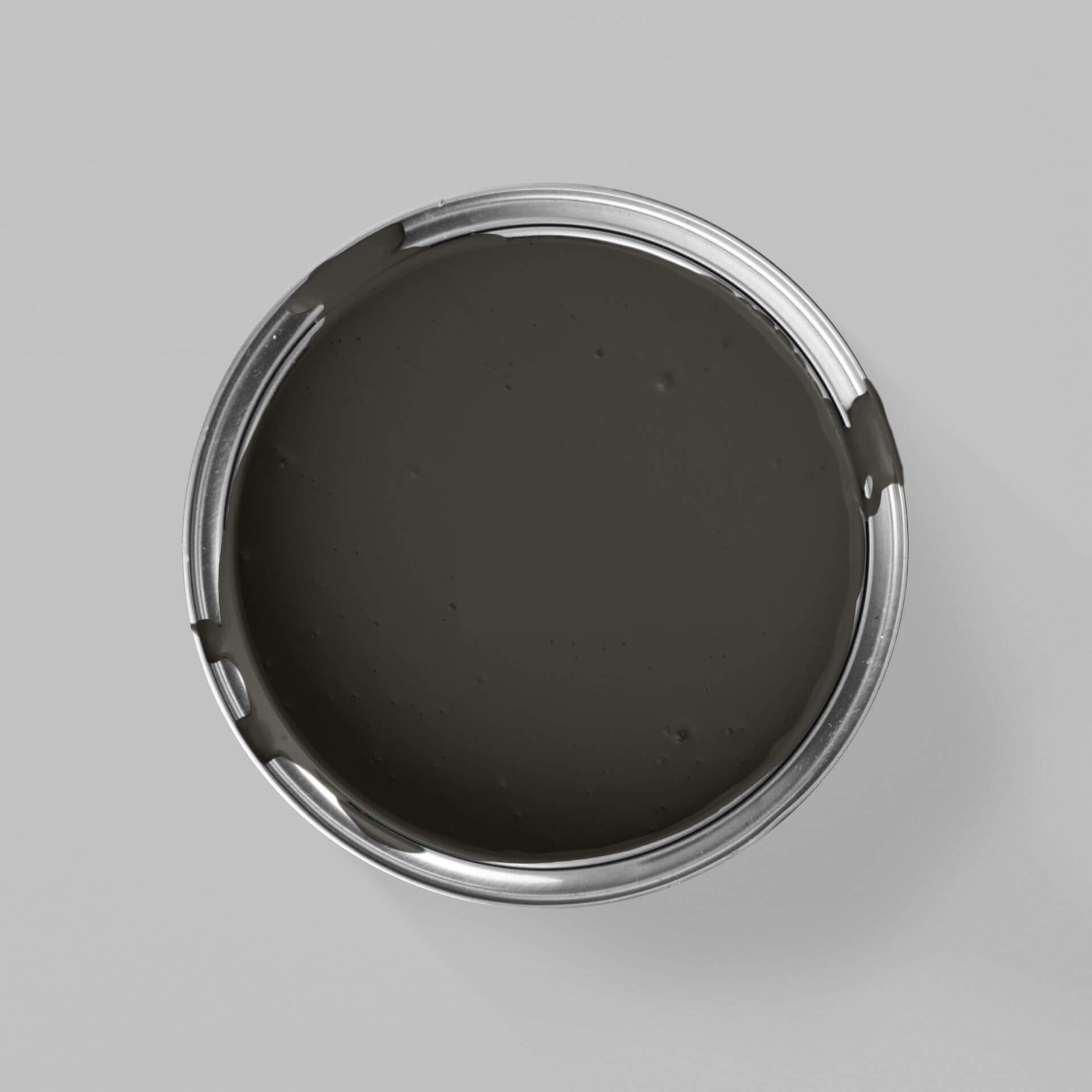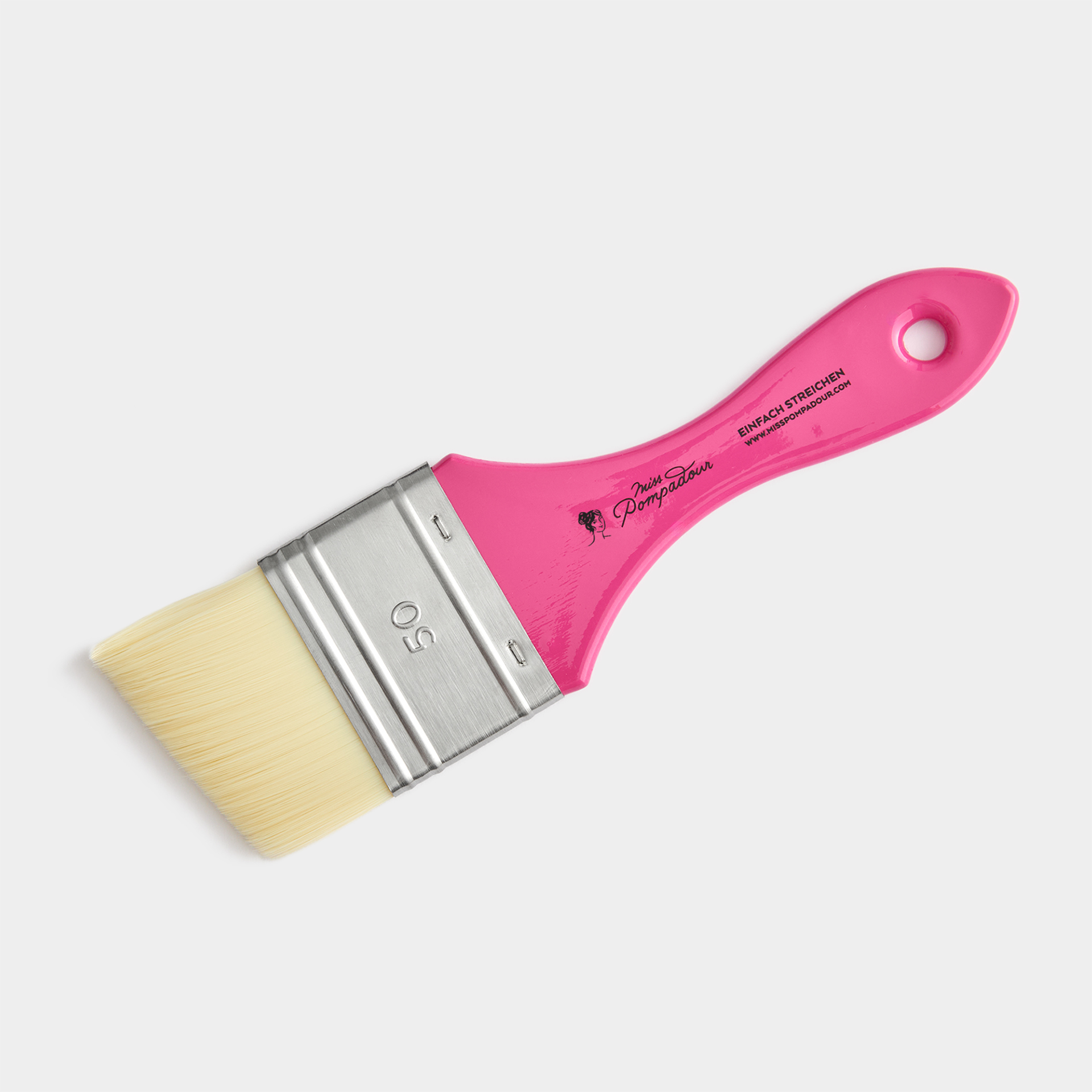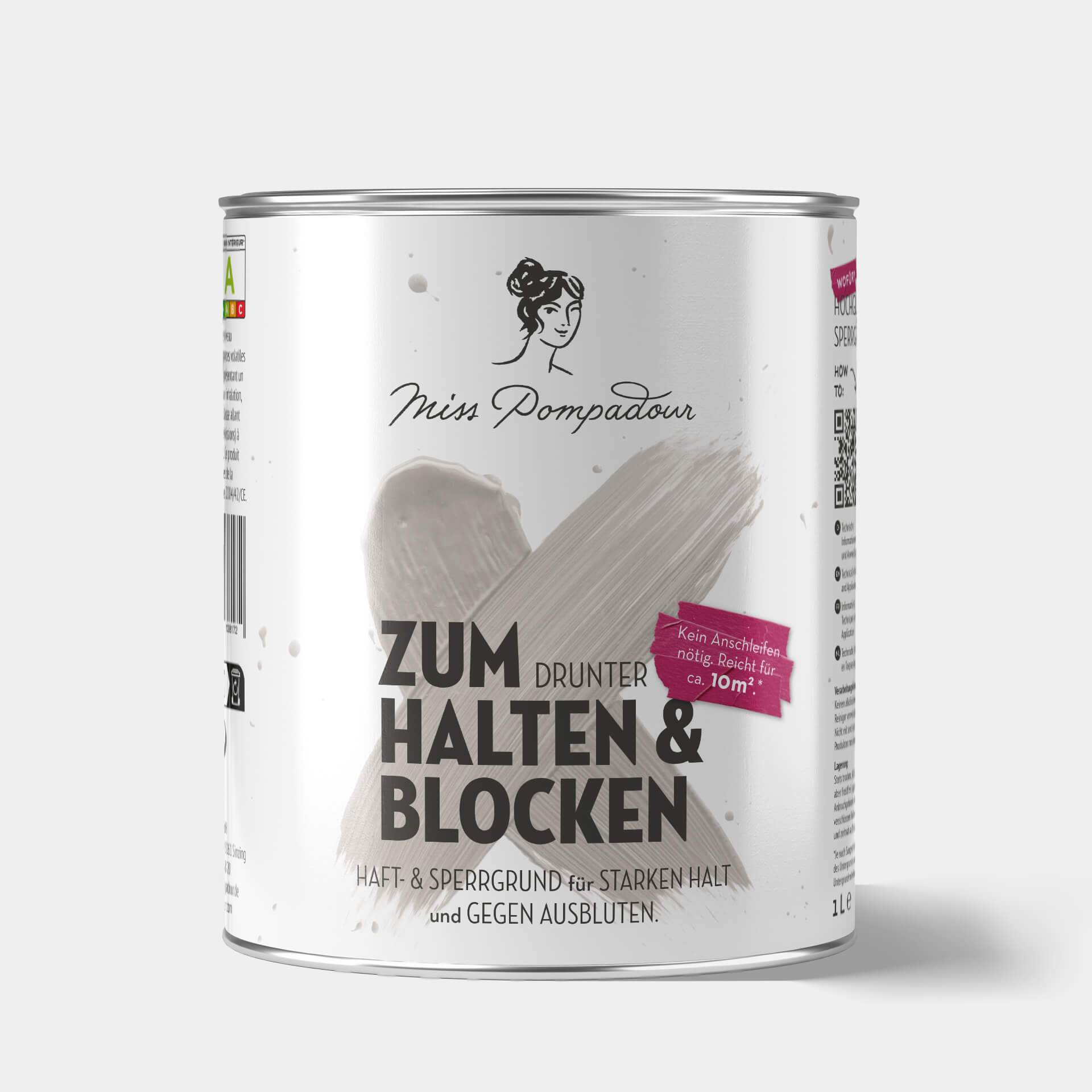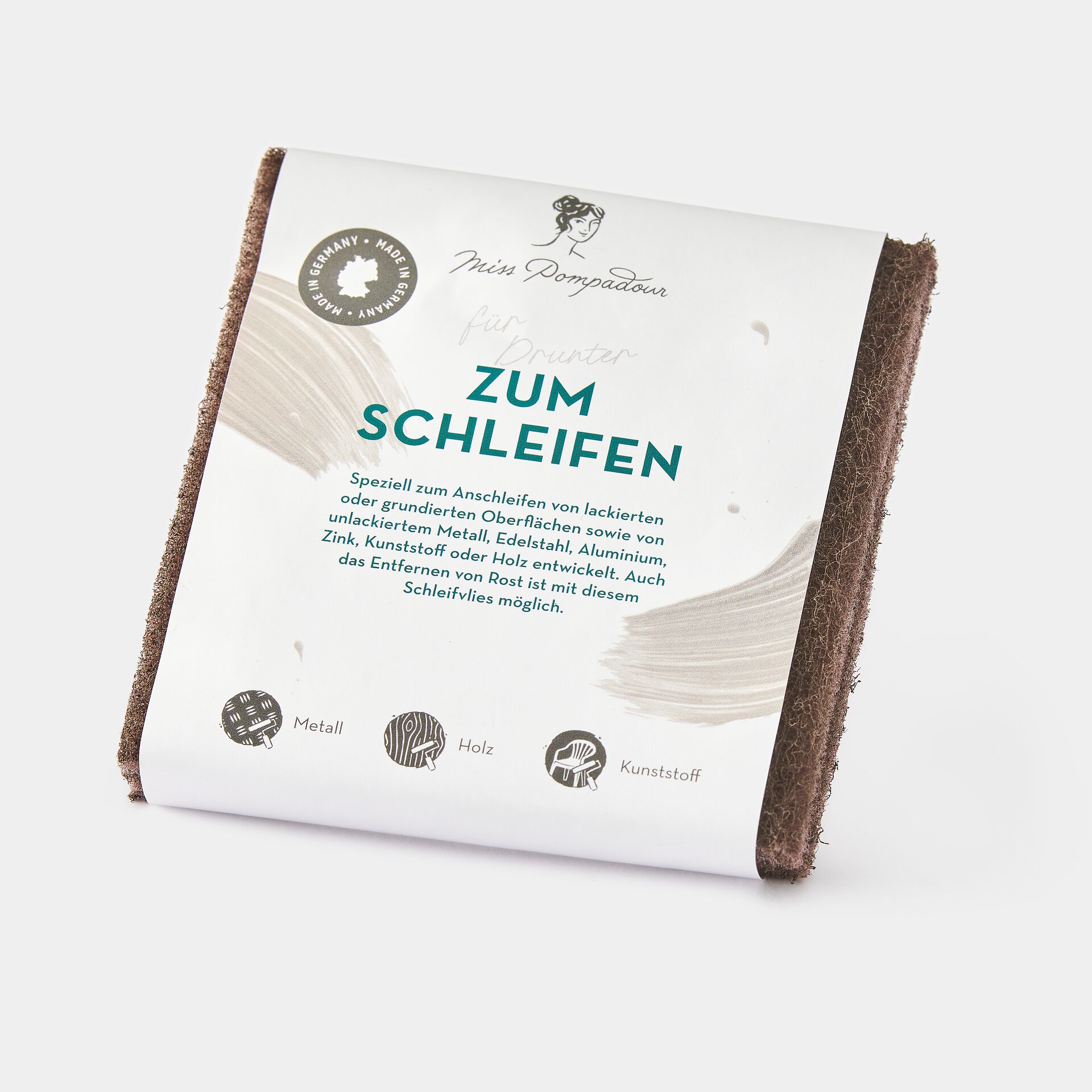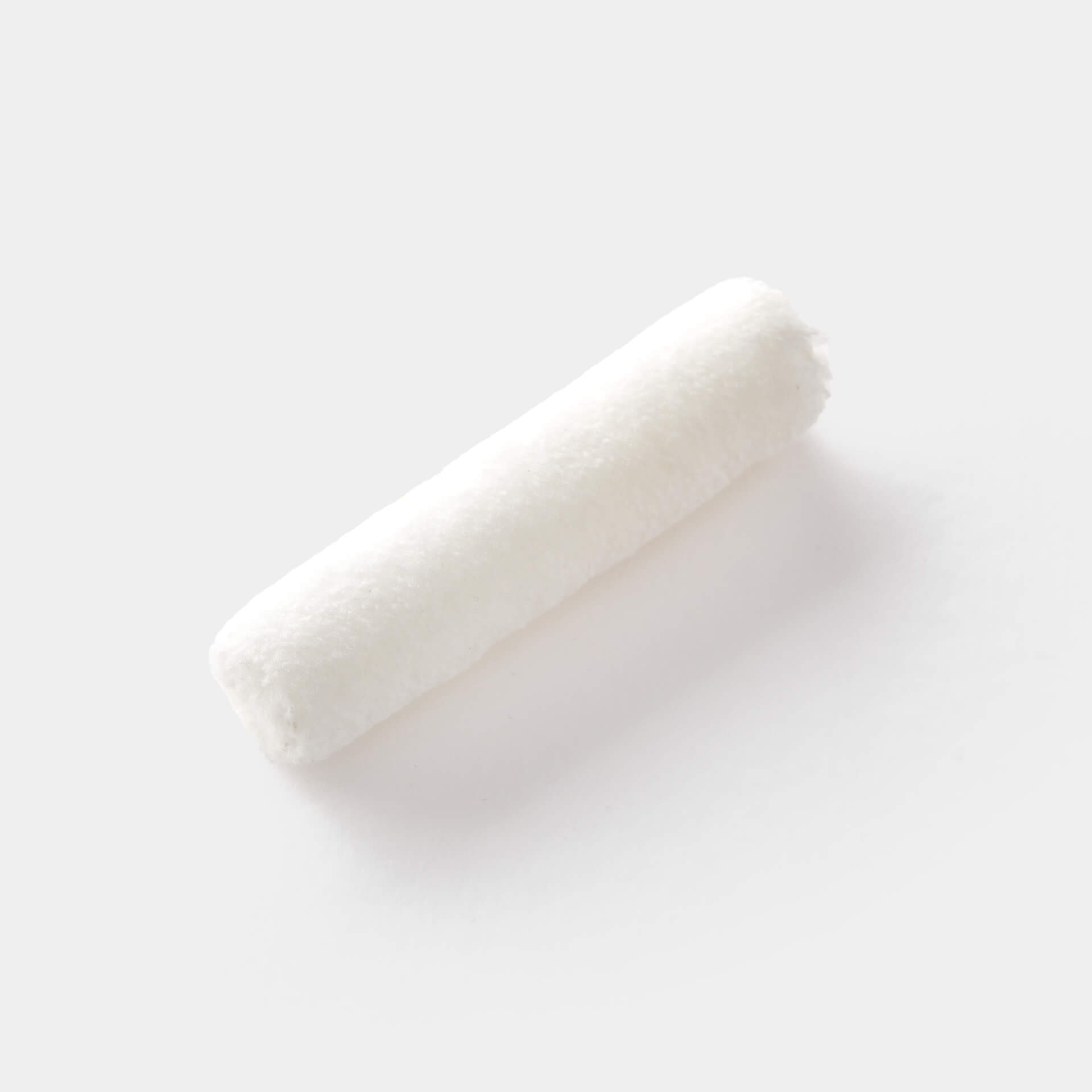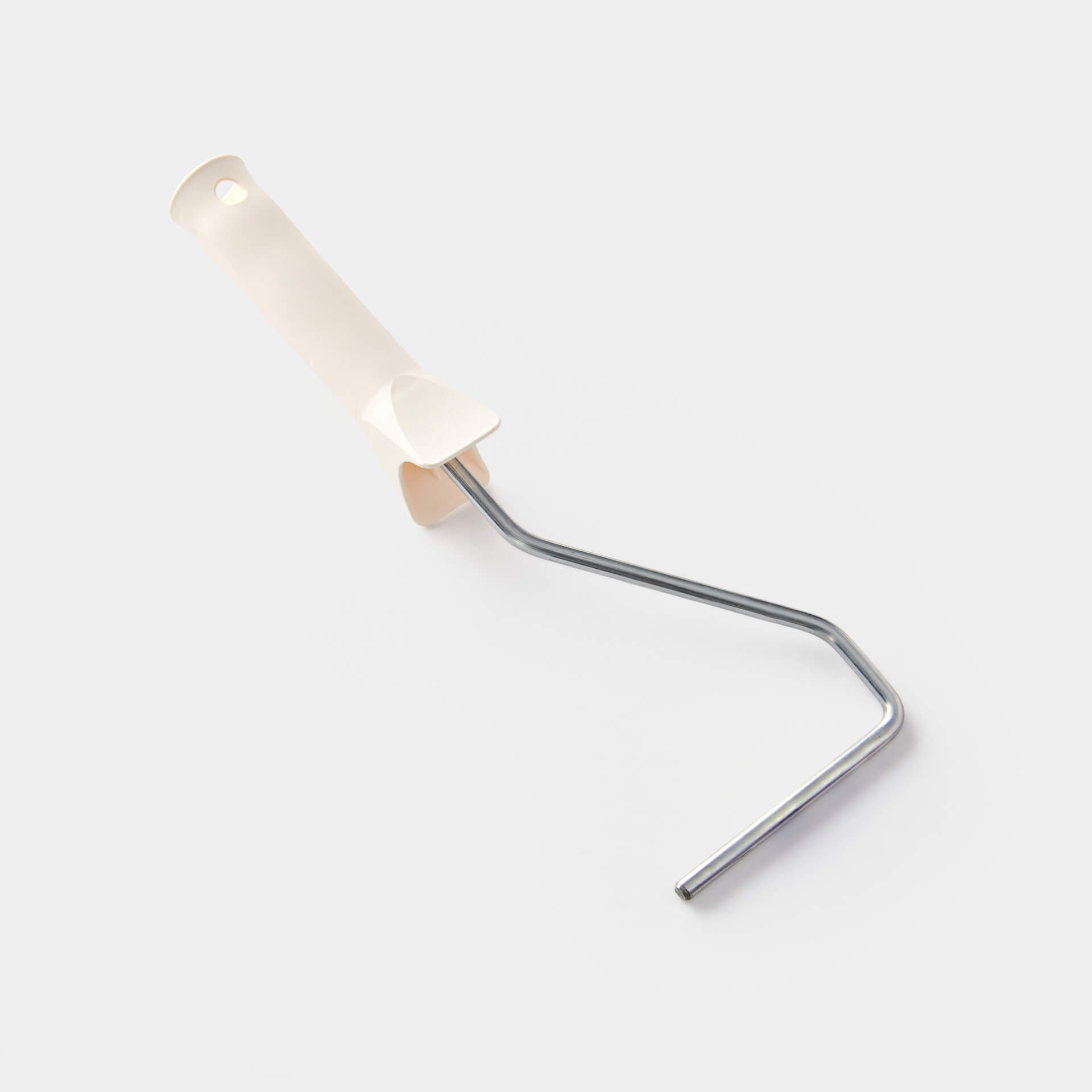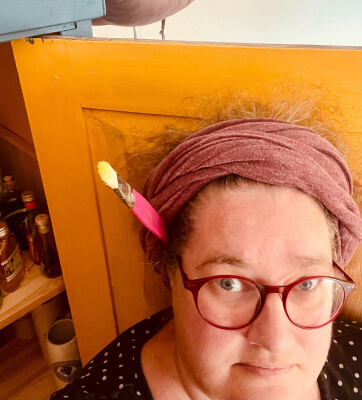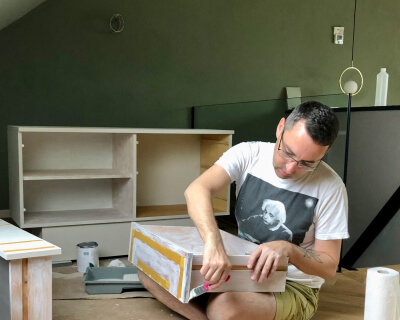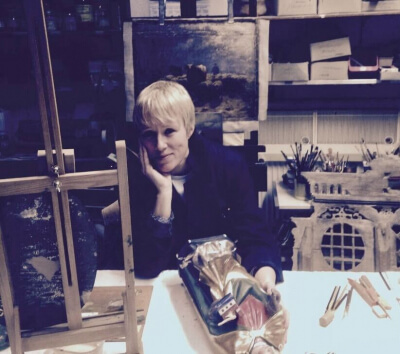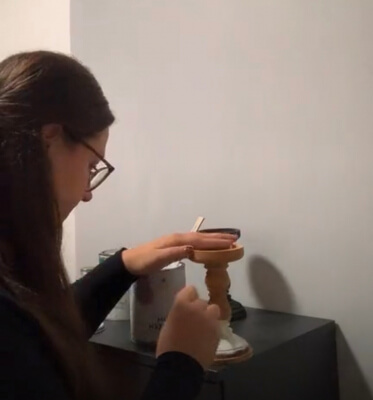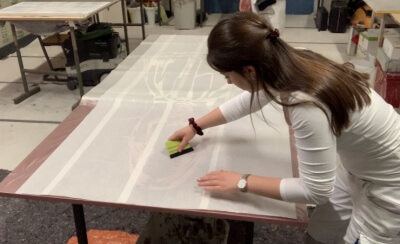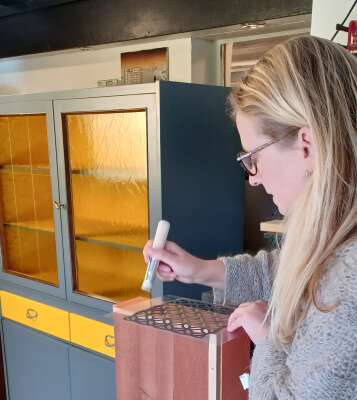Painting Metal Garden Furniture
10 min reading time
Table of contents
But don't worry: with our tips for varnishing metal garden furniture, you can turn even battered pieces of furniture into graceful pieces again.
Before
- The stool has not withstood the weather and needs a makeover.
Ideas for painting garden furniture
Sometimes they are painted white, sometimes anthracite - metal garden furniture is often very plain. But why not go a little more colourful or even really bold?
Just take a look at the outdoor colours. We recommend the Easy Eggshell! from MissPompadour. It has the perfect selection of great colour shades. Play with the colours when you paint your metal garden furniture.
Preparation: How to choose the right colour for your metal furniture
Use the same varnishes as for wood or plastic to repaint your metal garden furniture.
Isn't that practical if you want to give furniture made of different materials a new look? Our water-based and low-emission paints are also ideal for metal surfaces. You don't need any additional protective lacquer. The first choice is our Easy Eggshell! from the Just paint collection.
Which metal do you want to paint?
Pro tip: You can also use leftover paint to paint lanterns or garden lamps in the same look as the metal garden furniture.
What gloss level do you want on your furniture?
- Matt effect: Matt colour shades are less suitable for painting metal garden furniture. Matt varnishes are naturally rougher and have a lower varnish content. This makes them less robust and weather-resistant. They adhere less well than semi-gloss, glossy paints or special outdoor varnishes. If you still want to go for matt effects, then only use them on furniture that is not subject to much wear and tear and is well protected from rain and dust.
- Silk matt effect: Silk matt paints and varnishes are the most hard-wearing. As already mentioned, our Easy Eggshell is an excellent choice !
Painting metal garden furniture the right way: Instructions from MissPompadour
Before painting
Step 1: Sanding down
Painting metal garden furniture without sanding - is that possible?Remove rust particularly carefully. Otherwise the rust will continue to bloom under the varnish and soon flake off again. Use medium-grit sandpaper for the sanding work or our Sanding Pad To Sand on smooth surfaces. On heavily textured metal surfaces with lots of small bumps and indentations, a wire brush is a good choice. Of course, you can also use an electric sander with the appropriate attachments. Apply a rust protection primer after sanding.
Step 2: Cleaning
To be ready for the first coat of paint, you need to thoroughlyclean the garden furniture of oil and grease. To Clean from MissPompadour also creates a grease-free, absolutely clean surface on metal and is a great basis for an even and long-lasting coat of paint.You should pay attention to this when varnishing the metal furniture
Step 3: Masking off
Use adhesive tape and possibly paper or foil to mask off the parts that are not to be painted or are to be painted in a different colour.Step 4: Priming
First treat raw iron and sanded rust spots with a rust protection primer. On most metals, our To Bond & Block - MissPompadour Primer is the ideal primer to prepare your metal furniture for painting. This ensures that the varnish lasts as long as possible. Always apply the primer opaquely and make sure you use clean tools.Step 5: Painting
Now apply your desired colour. Make sure you paint rather thinly. Allow the paint to dry well and paint over it again 4 hours later. This will ensure a nice even coat of paint.If you are painting metal garden furniture outside, the temperature should not fall below 10°C, not even at night. The varnish cures best at temperatures between 10°C and 25°C
Step 6: Drying
You will probably want to sit on your metal garden bench as soon as you have painted it. But it's better to wait 1 week to 14 days before you put the furniture to full use. Only then will the varnishes and colours have dried and hardened optimally.In future, make sure that no standing water forms on the garden furniture. So tilt the table and chairs after use. Otherwise the paint may peel off over time
Spray on metal paint
It's much quicker, easier and, above all, more even if you spray the varnish onto the previously cleaned garden furniture using our handy paint spray system.
We will show you exactly how this works and what you need to pay attention to in the next few steps.
Cover the floor under your garden furniture with sufficient film before you start, for example with our paint tarpaulin
Step 1: Prepare the varnish
All our water-based varnishes are sprayable. First stir the paint well in the can. The varnish is sprayable when it drips evenly from the stirring rod without leaving any residue. Now fill the paint container with the desired amount of varnish. Dilute the varnish with a maximum of 15 % water to make it easier to spray. Then screw the paint container onto the spray headStep 2: Adjust the paint spray system
As your garden furniture is on the ground, you will mainly be spraying downwards. Therefore, point the riser pipe forwards. Now simply adjust the spray jet.There are three options for this:
- For spraying from left to right, set it vertically.
- If you are spraying from top to bottom, use the horizontal setting.
- For precise spraying, select the pinpoint detail jet
Step 3: Test spraying
To get a feel for the spray pattern, you should carry out a test spray. Simply take a box and try it out once. Now you can also adjust the paint quantity until you get the desired colour jet.Pro tip: Spray at a steady pace and keep about 15 cm away from the surfaces. When you have reached the end of the spray object, release the trigger and only then change direction. The best result is achieved by spraying in overlapping strips of around 30%.
Step 4: Varnishing the metal furniture
Now the tension is rising: it's time to get started. Turn the chair upside down so that you can start with the inside of the legs and the underside of the seat. Then turn your piece of furniture over and spray the legs first, then the seat and finally the front and back of the backrest.Proceed in a similar way with the table: First turn it over, spray the legs with the pinpoint spray setting and then the underside of the table surface.
To do this, switch to the horizontal or vertical spray setting. Now turn the table over and carry out the same steps again, starting with the table legs.
To provide your garden furniture with good protection against wind and weather for as long as possible, you could apply another coat after around 6 hours.
FAQ: Frequently Asked Questions about Painting Metal Garden Furniture
Do I need to sand metal garden furniture before painting?
If there are even small spots of rust or corrosion on the metal, there is no way around sanding. Only if the metal structure is still completely intact can you do without sanding.
Can I paint all the metal garden furniture?
Our outdoor-suitable, water-based paints adhere very well to most metal surfaces. Exceptions are anodised, non-colour-treated aluminium or freshly galvanised and untreated iron.
Can I also paint plastic garden furniture?
Yes, that is quite simple. Often you can even save sanding. To Paint you proceed in a similar way as when painting metal garden furniture. You can find out exactly how it works in "How to paint plastic garden furniture".
Can I paint over painted metal?
The speed at which weather-related damage appears depends not least on where you have placed your furniture. Standing water on surfaces always puts a lot of stress on it. That's why you should put your garden furniture out in the dry in bad weather. How often you need to glaze, oil or paint your garden furniture depends on several factors and can vary between 3 and 6 years.
Any questions about painting garden furniture?
A good opportunity to share your tips - for more colour in our gardens and in our lives.
You need these tools for varnishing metal garden furniture
- Brushes: You will find the right brush for every purpose in our range of brushes. The narrow angled brush is particularly suitable for corners and angles.
- varnish roller:varnish rollers are ideal for larger surfaces, such as garden tables. They give you a nice, even coat of paint.
- Paint sprayers: Our paint spray systems from Wagner are the first choice if you want to paint a metal table, for example, and apply the varnish particularly evenly. Even hard-to-reach areas can be painted easily.
- Adhesive tape: A high-quality adhesive tape that doesn't peel off during painting and allow paint to run under the tape is worth its weight in gold. You will find a large selection in various widths and qualities at our MissPompadour Tools.
- MissPompadour Sanding Pad : The MissPompadour Sanding Pad To Sand is gentle on your garden furniture and effectively removes old varnisher residue at the same time.

